A man closes his eyes. Everything suddenly turns to black and he is all alone. It is a moment, all his. Something truly his own. Then a sound creeps in… thump.
Thump, thump.
He notices his heart beating to the cadence of life and he is taken aback. He takes a deep breath, slowly letting life in and exhaling anything that would take him away from this place. From this solitary moment.
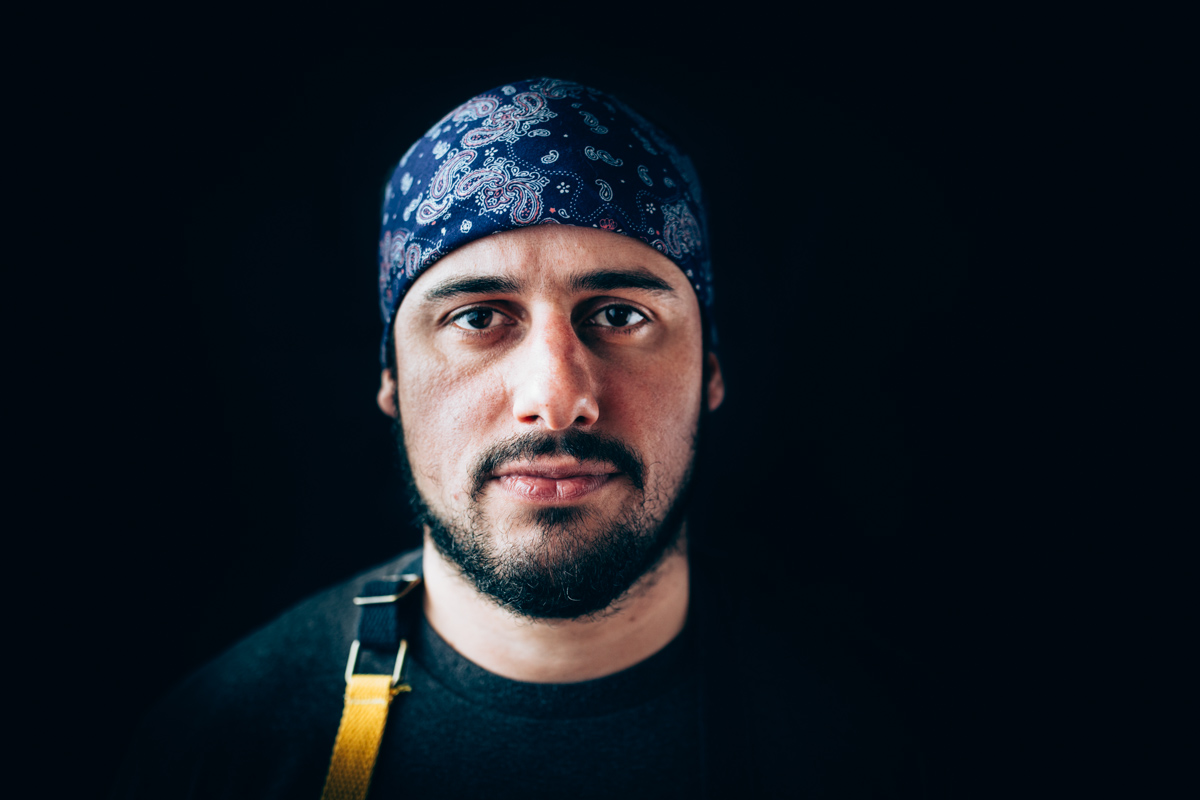
Next to him, a woman sits with her eyes closed. Lost in her thoughts, she exhales as life escapes her only to return seconds later. She hears a sound, her heart beating… thump.
Thump, thump.
The sound of faint breath next to her catches her by surprise. Suddenly, she is not alone. He is with her.
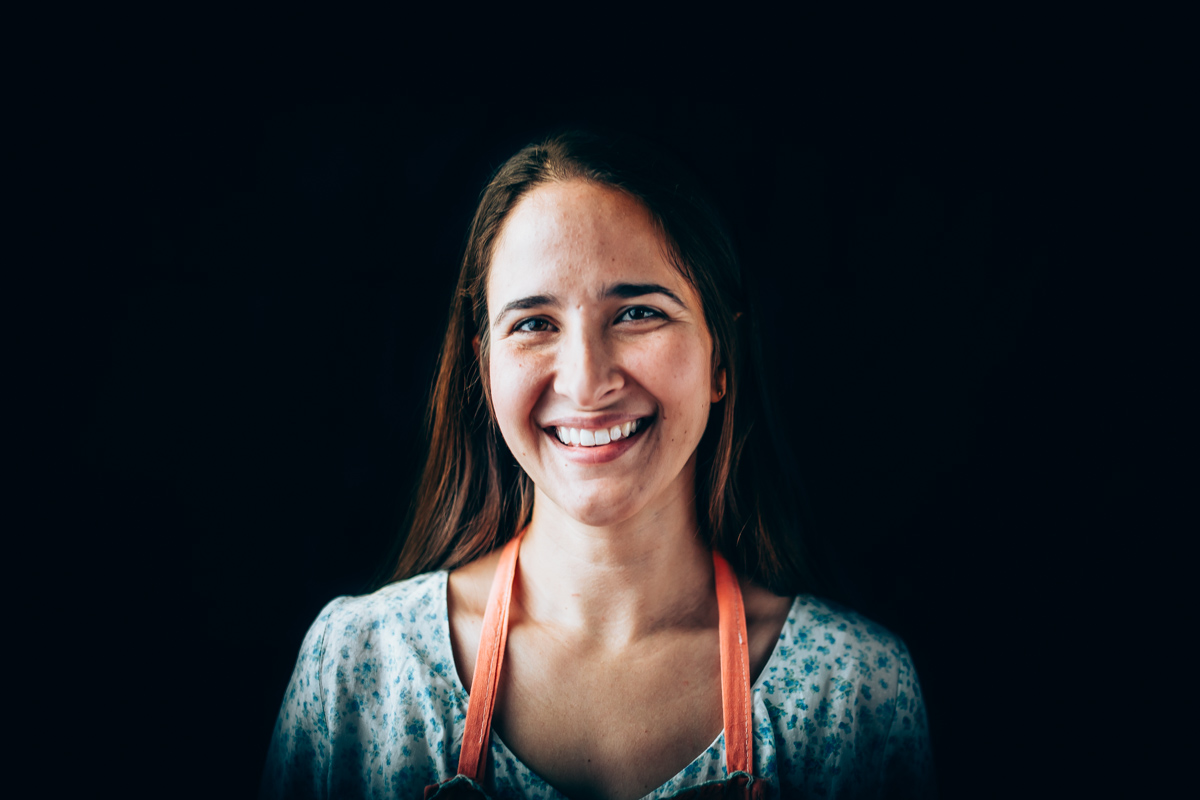
She extends her hand. With a light touch, he embraces hers and they realize that they were together the whole time, experiencing a journey they set out on together long ago. Their pace dissipates and they open their eyes to see bandanas, aprons, and black buttoned up shirts all around them. Family by their side. Love filling the room.
In the space there was camaraderie. An unspoken respect that words cannot define. It was a feeling that could only be felt by those who went to battle day in and day out alongside each other; who shed blood, sweat, and tears; who carried each other when they were down; who loved when no else did.
A feeling that is only felt amongst kin.
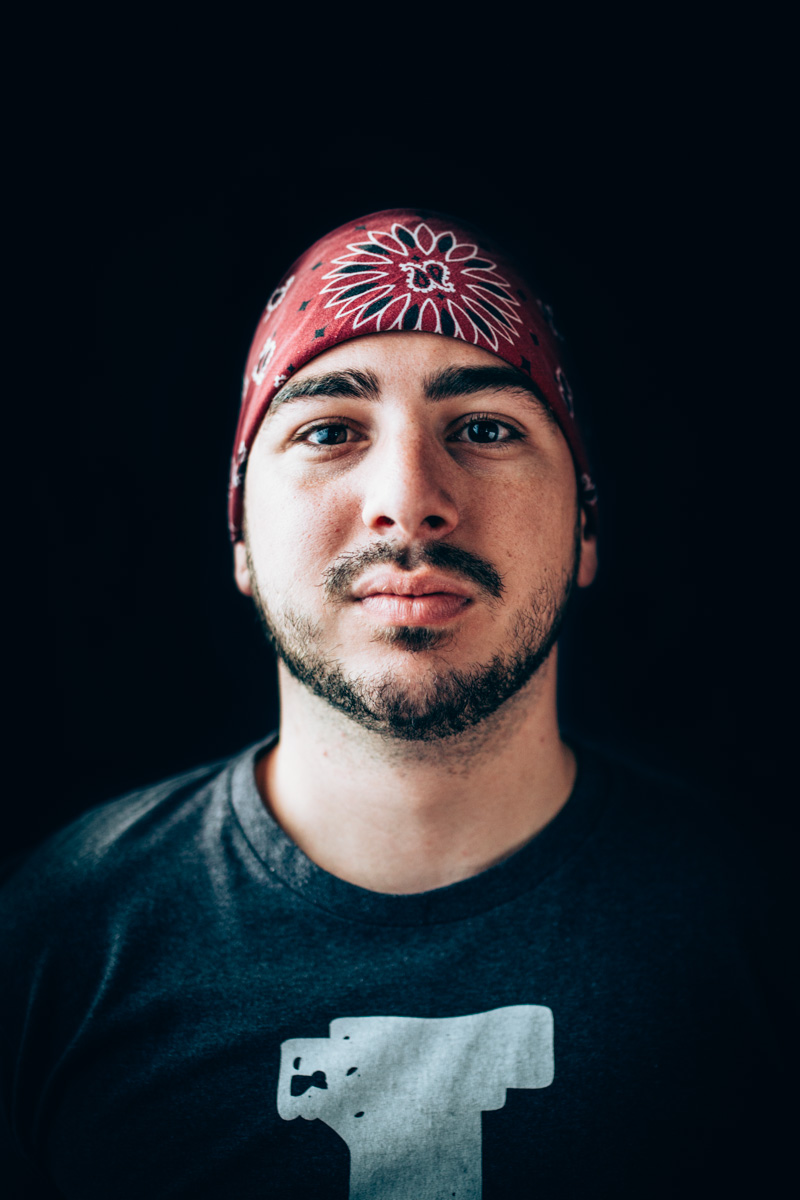 |
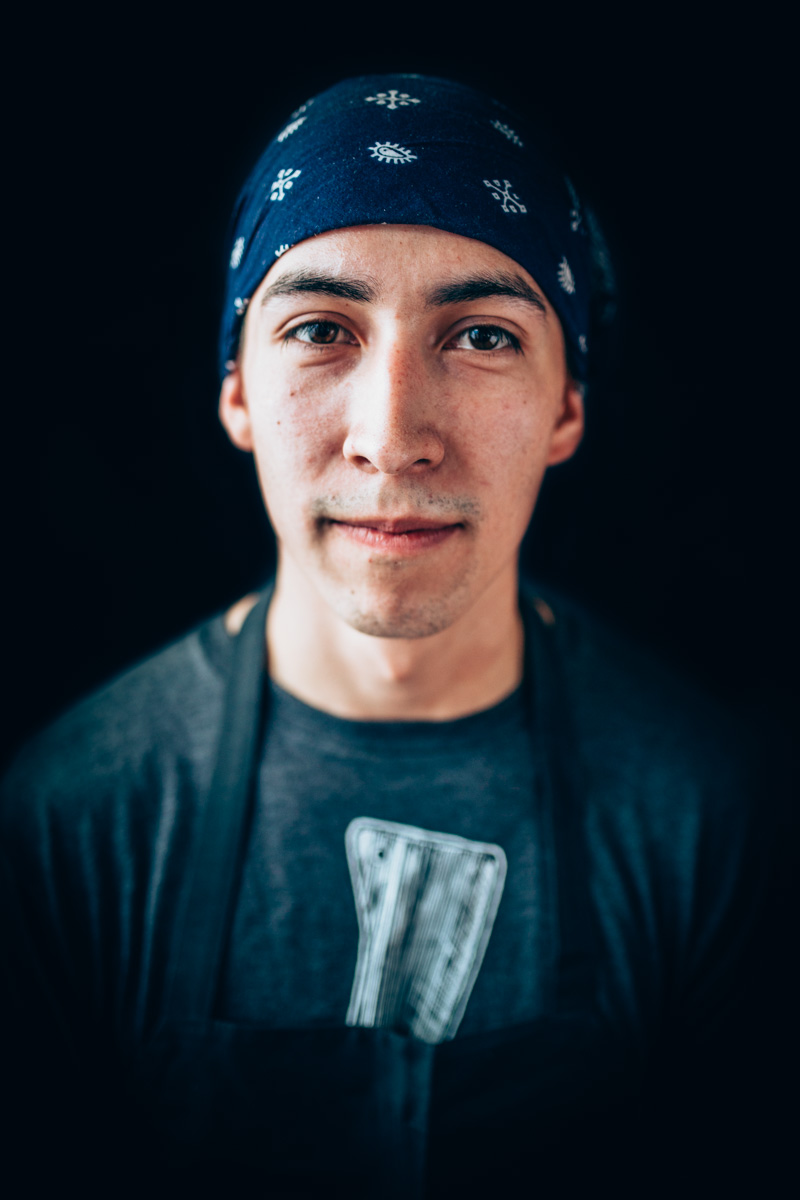 |
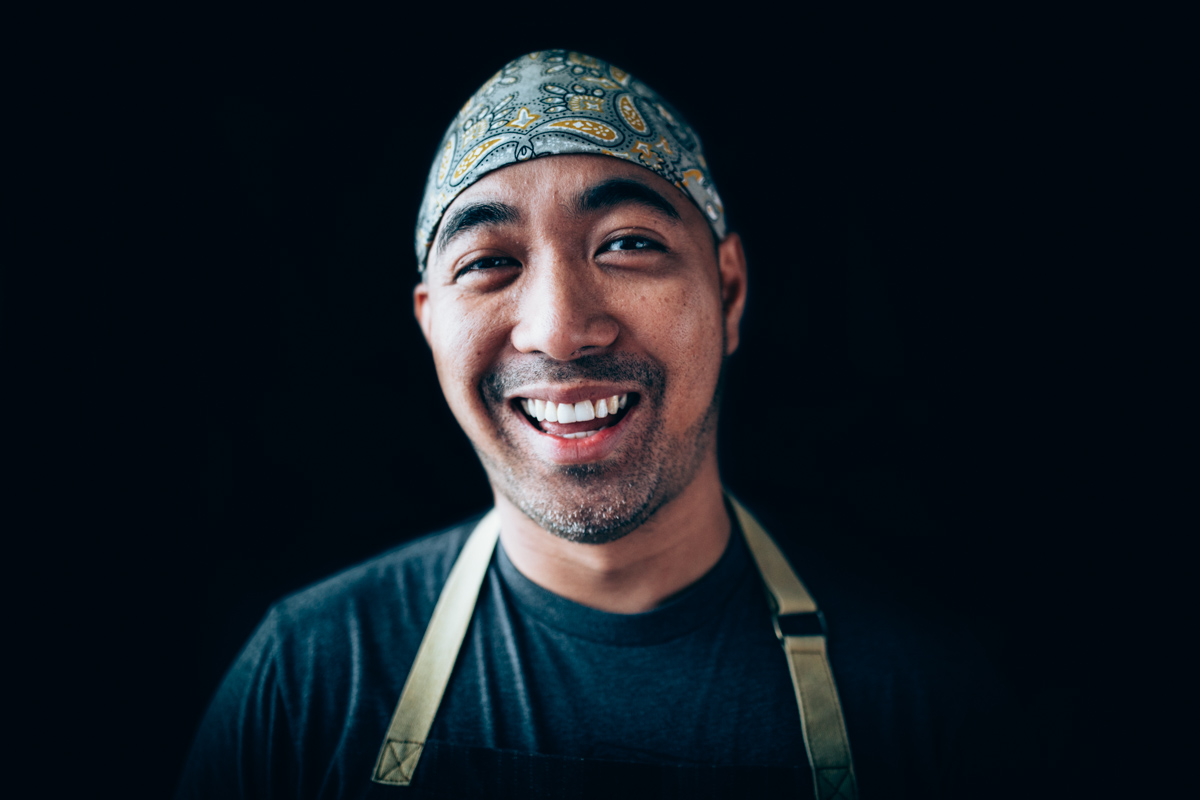 |
|
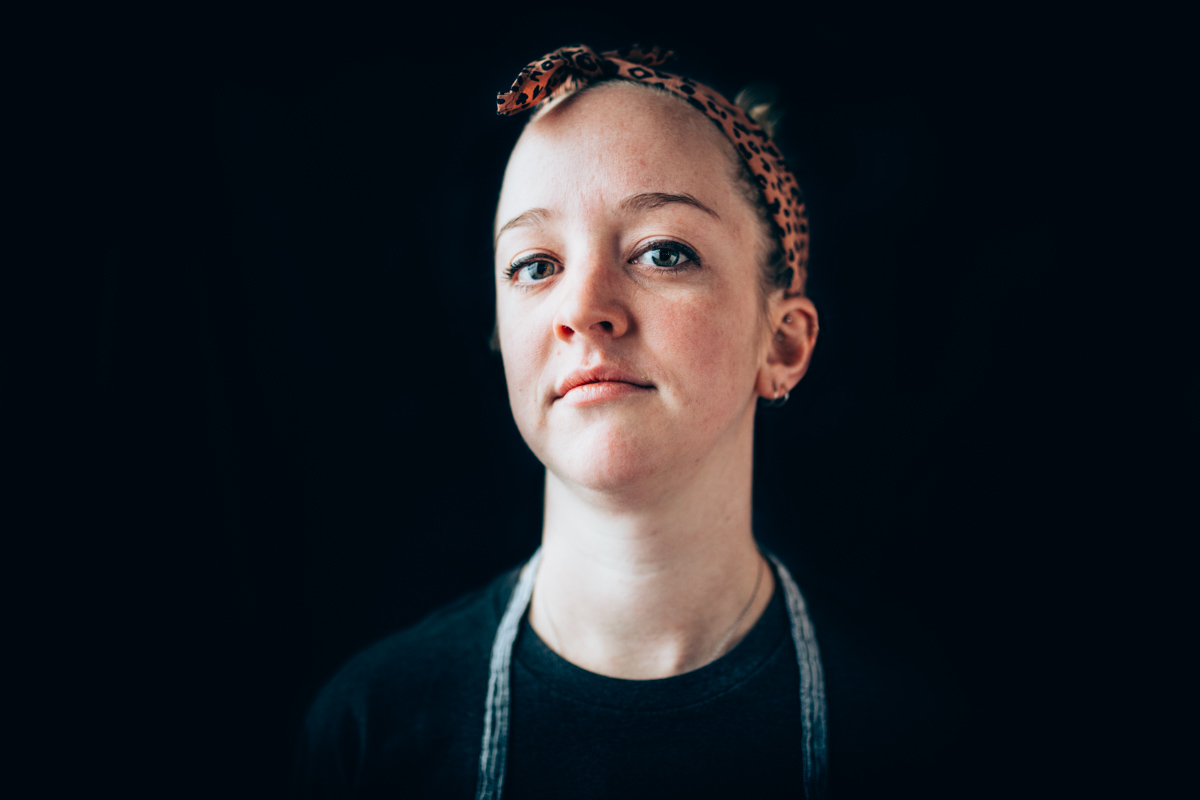 |
|
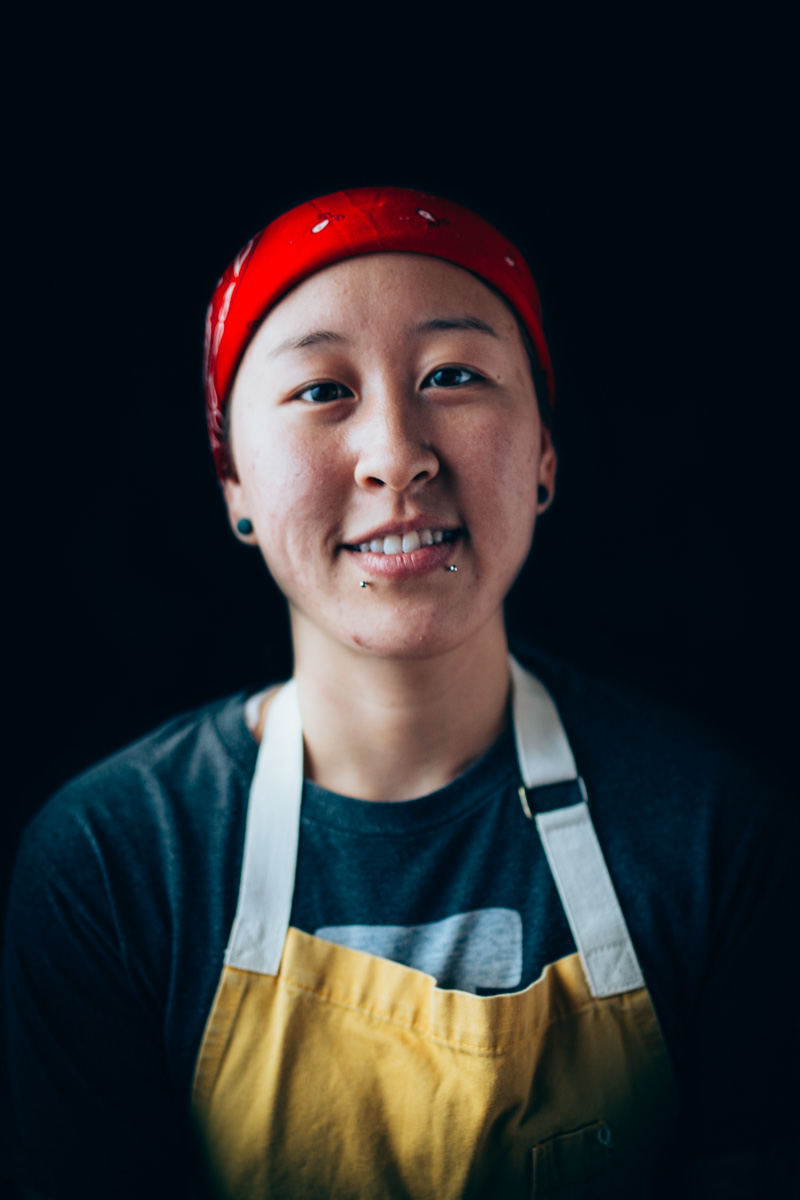 |
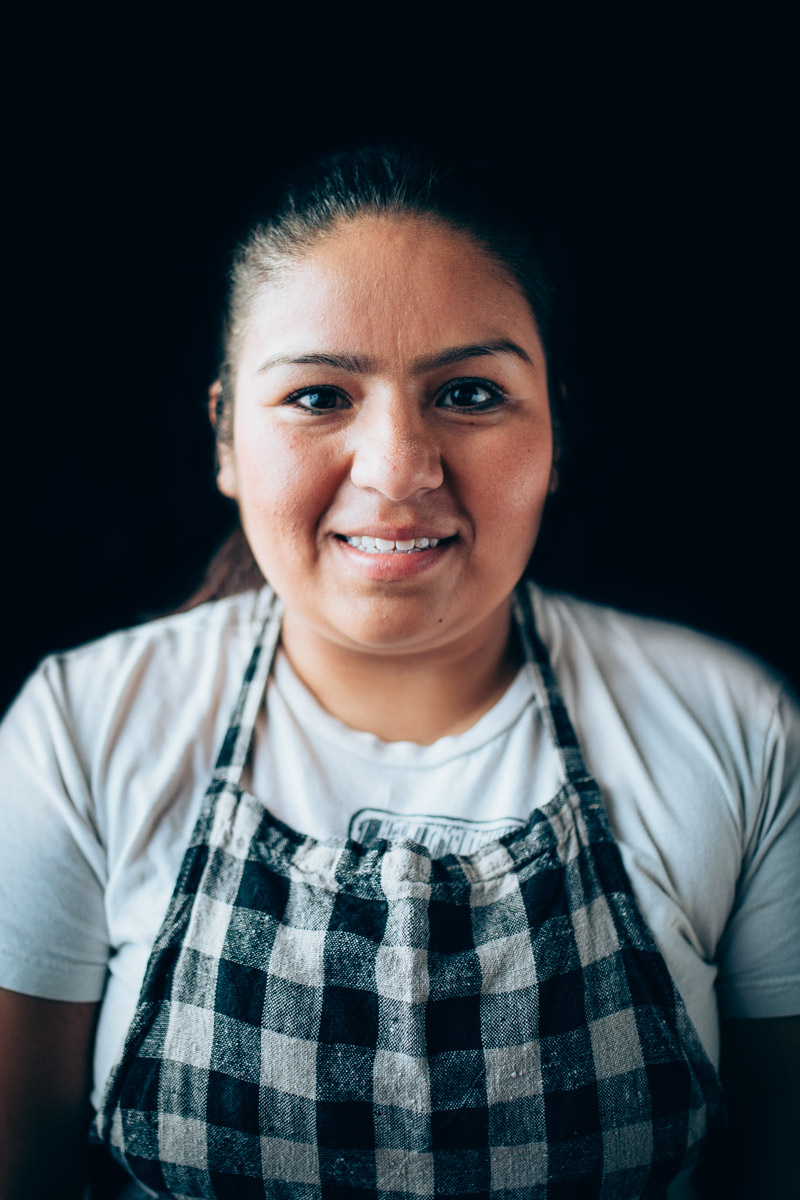 |
This is not a story about a “hip,” “trendy” restaurant—as some may call it—located in the Arts District of downtown Los Angeles. This is not a story about being considered one of the best.
It’s about love, the agape one has for one another. It’s about family, the secret ingredient that makes life manageable and doable. It’s about a passion that fuels the heart in all of us.
This is a story about the husband and wife team of Ori Menashe and Genevieve Gergis.
This is a love story—the heart of Bestia.



Describe the moment you knew you wanted to be a pastry chef.
Genevieve: I don’t think it was a moment or what many would call an epiphany. As far back as I can remember, I was always obsessed with sugar. That was my life. My mom loved to share stories about me growing up. She would always start it with, “I will never forget when you were one and a half and I walked into the kitchen and found you on top of the refrigerator. I had no idea how you had gotten up there but you did. There was nothing in sight, not even a chair. Somehow you knew that was where I hid the cookies. It must have been sheer will.” My mother still jokes about that today. There was not a place in the house, the garage or the garden that she could hide the sweets that I wouldn’t find. I naturally had a sweet tooth.
From there, my first experience with pastries were from the bakeries at commercial supermarkets that were marked “fresh.” Unfortunately they weren’t and I started to bake out of necessity—I didn’t like the product that was being produced commercially so I said to myself, “I want to eat an amazing chocolate cake but I can’t find one. I guess I am going to have to do it myself.”
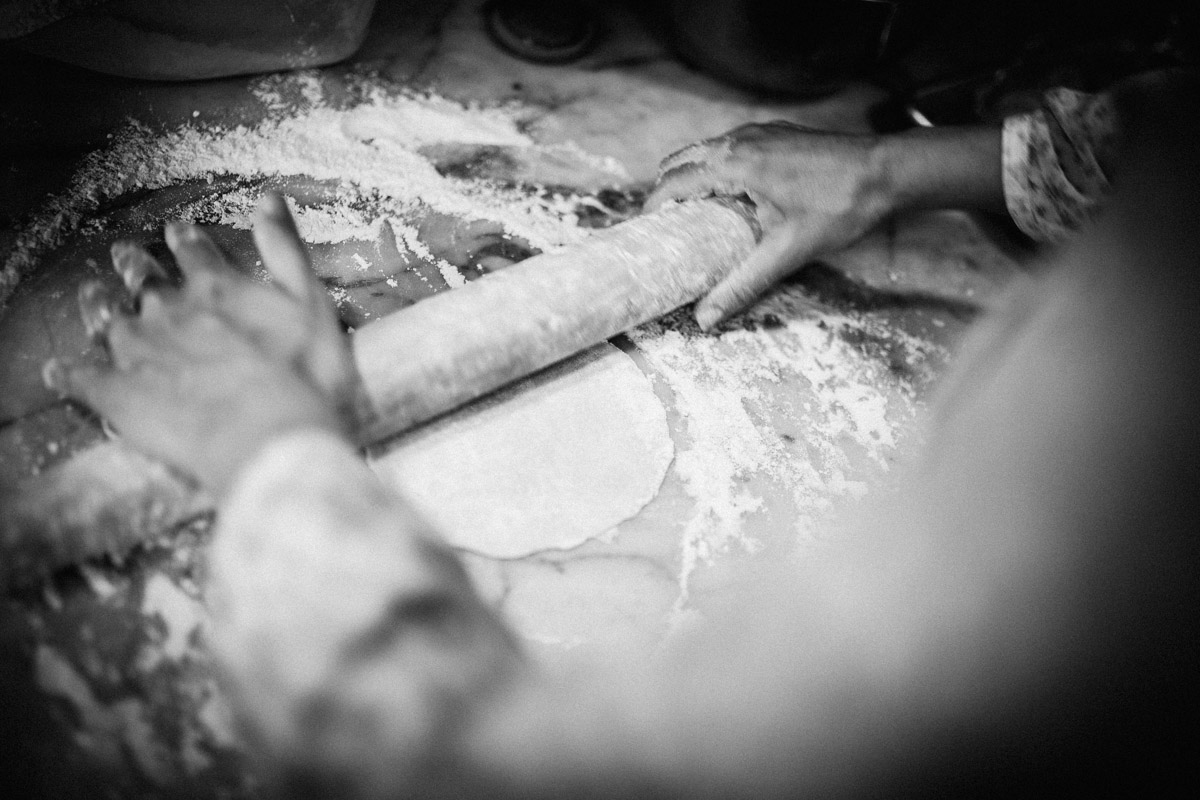
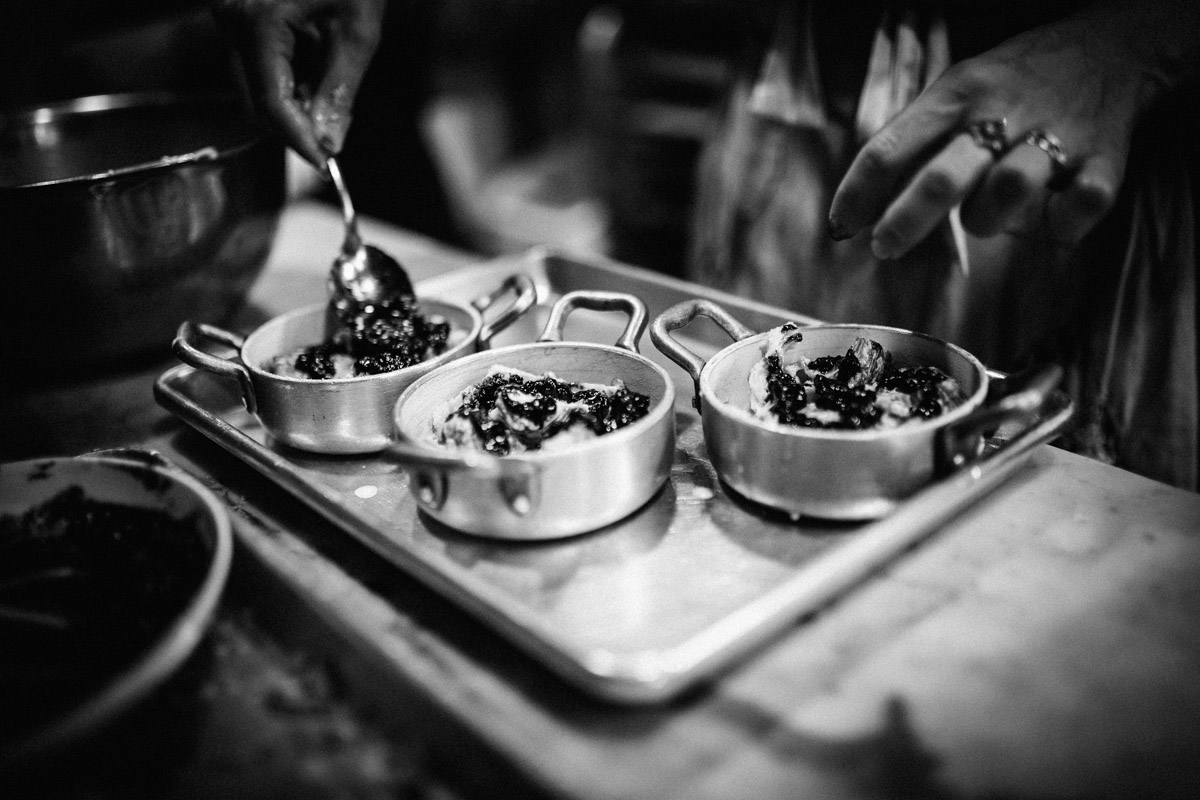
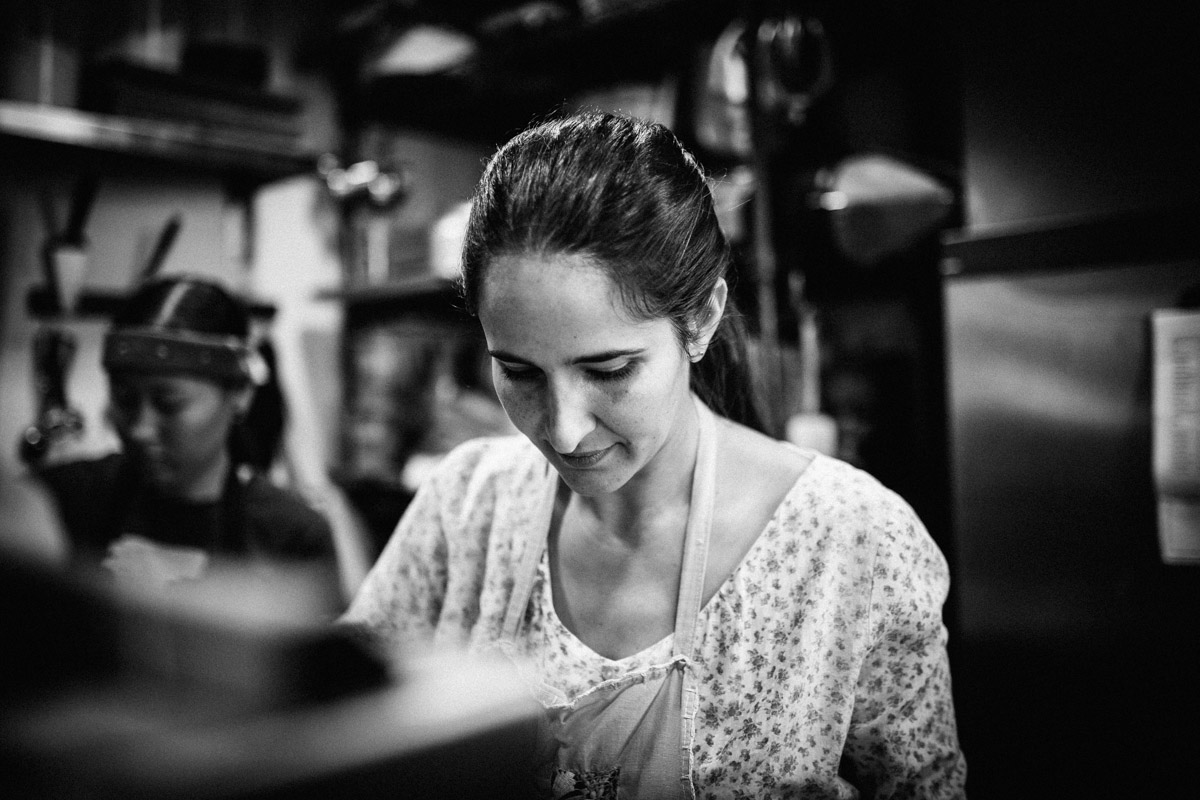
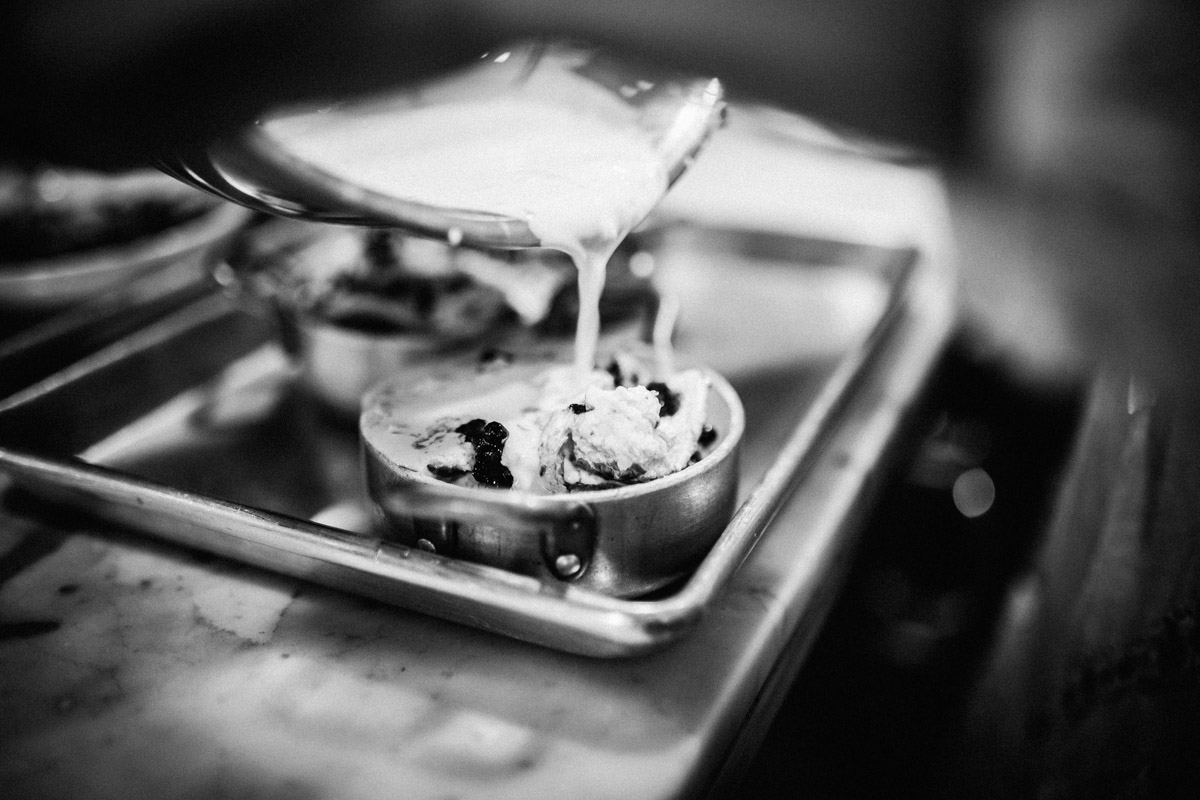
Ori, when did you feel like that moment occurred when you knew you wanted to be a chef?
Ori: I finished serving in the Israeli military in 2001. After that, I took a trip to South America—Chile, Argentina and Brazil. For eleven months I was on vacation. The word “aggressive” comes to mind to describe that trip. We actually went for a snowboarding trip but we found ourselves barely doing that. We partied all night instead and, when the morning came, we would miss our shuttle. We would sleep until around four in the afternoon and then do the same routine every night.
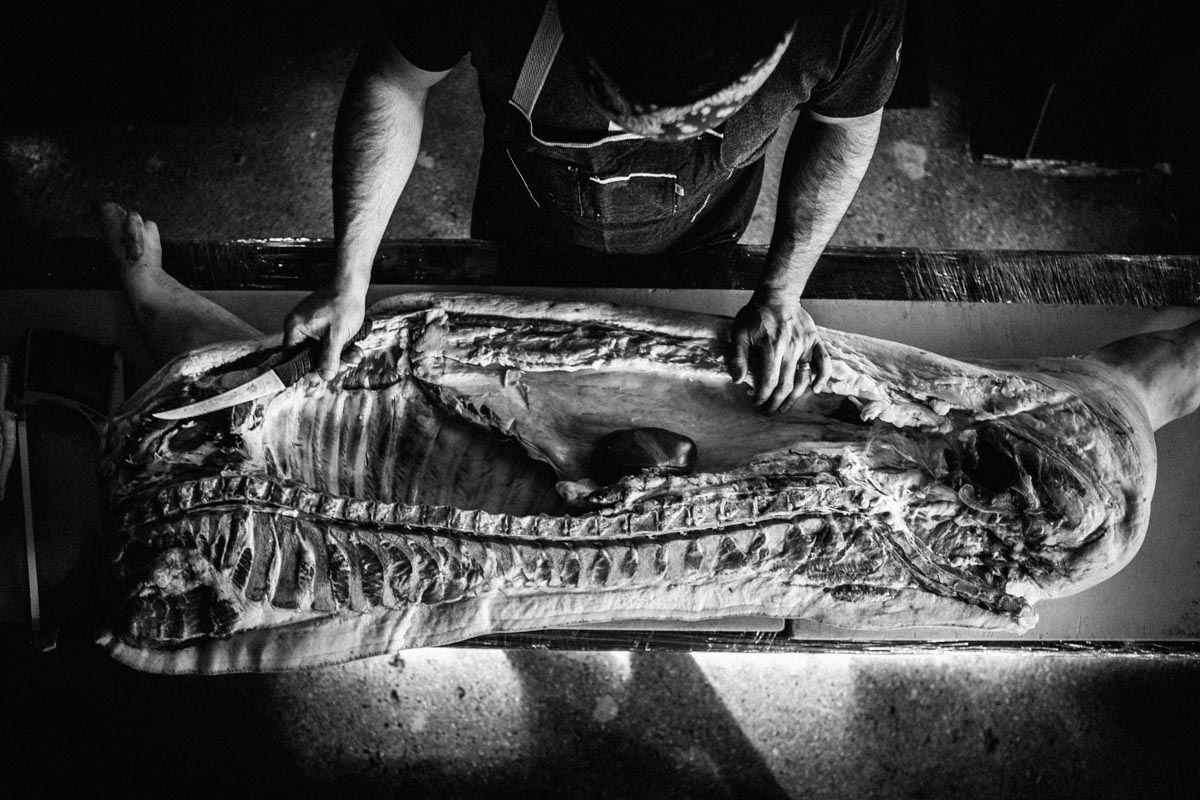
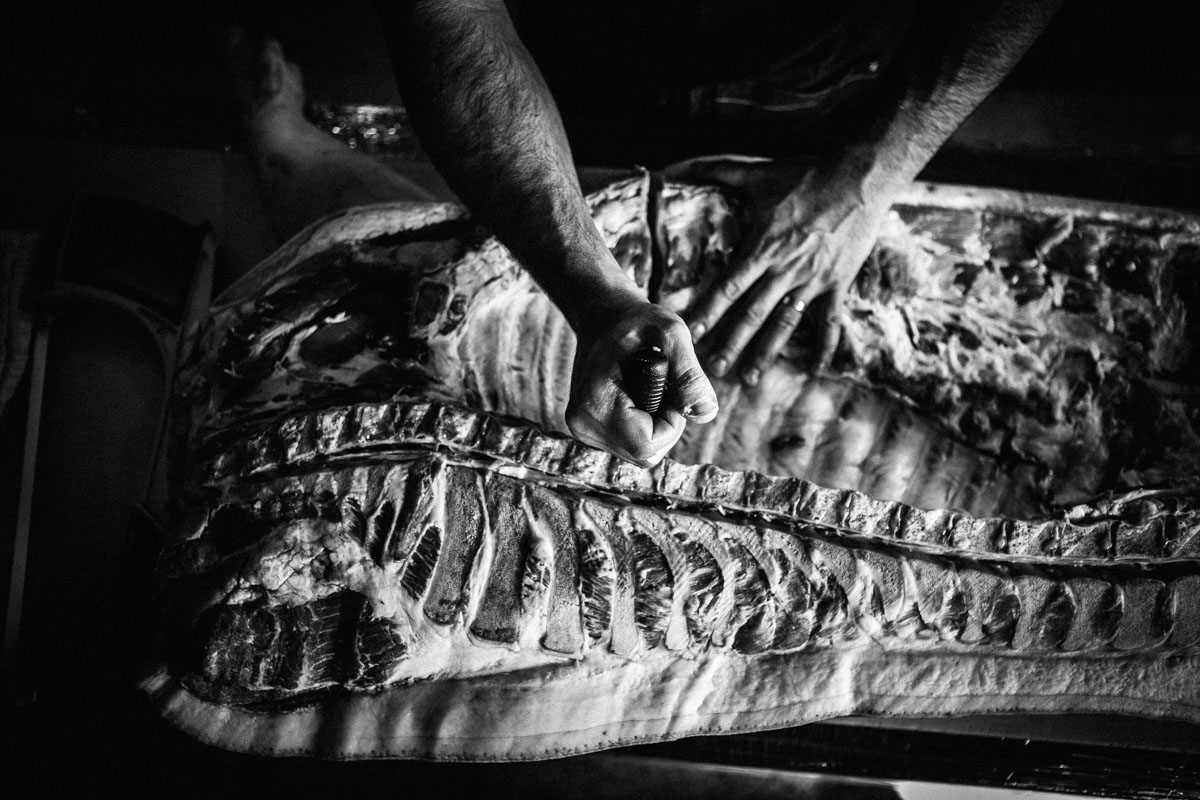
Did you feel like you were responding to the time away from the military?
O: Yes, definitely. You are in someone’s control for three years. Your schedule is run by someone. You sleep when they tell you to sleep. On the days we actually snowboarded, I decided to cook. I would leave the mountain, go buy some stuff, and then prepare something for everyone. Everyone else would arrive shortly after snowboarding and would be starving. They would sit and eat a table full of food I had prepared and they would get really excited. They would tell me, “This is insane! You cook better than my mom. You gotta do something.”
After my vacation, I arrived in the states. I said this (cooking) is probably something that I should do. I decided to test it out for a couple weeks. I got hired at a restaurant and worked hard. One day after my shift, I walked away in love with it and decided this was my going to be my pursuit.
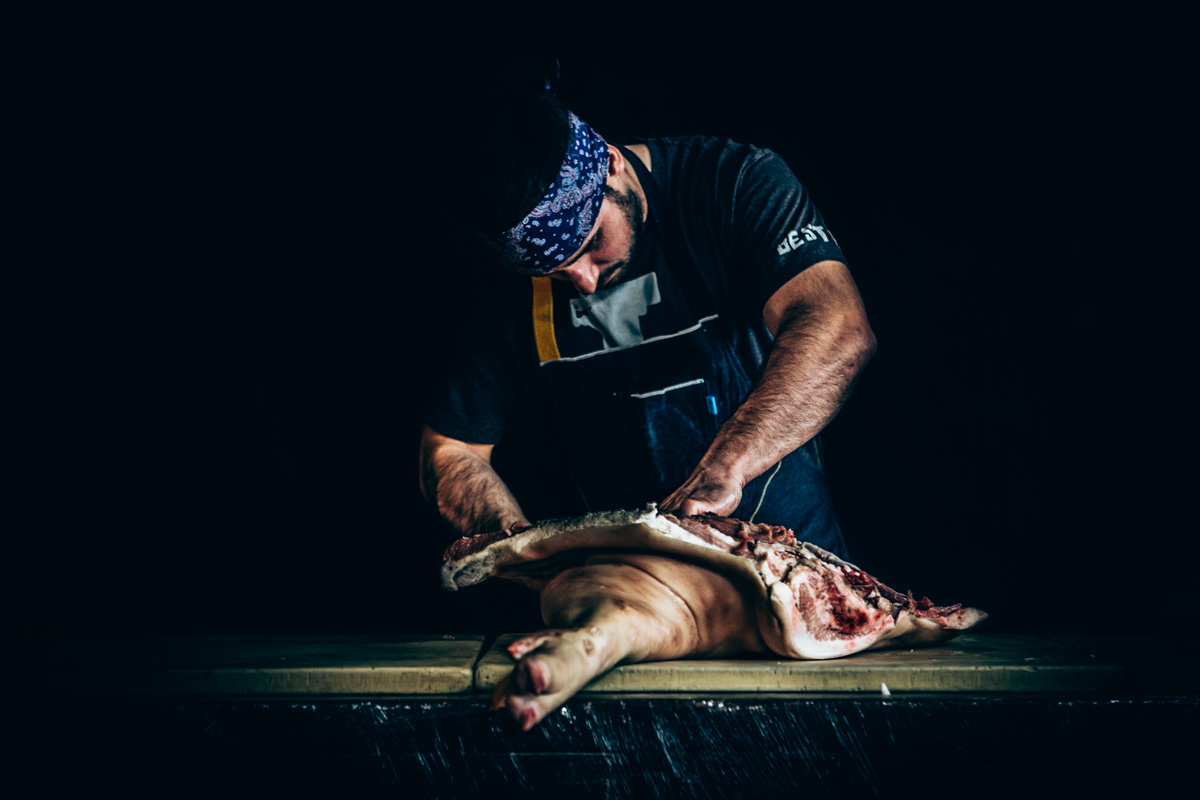
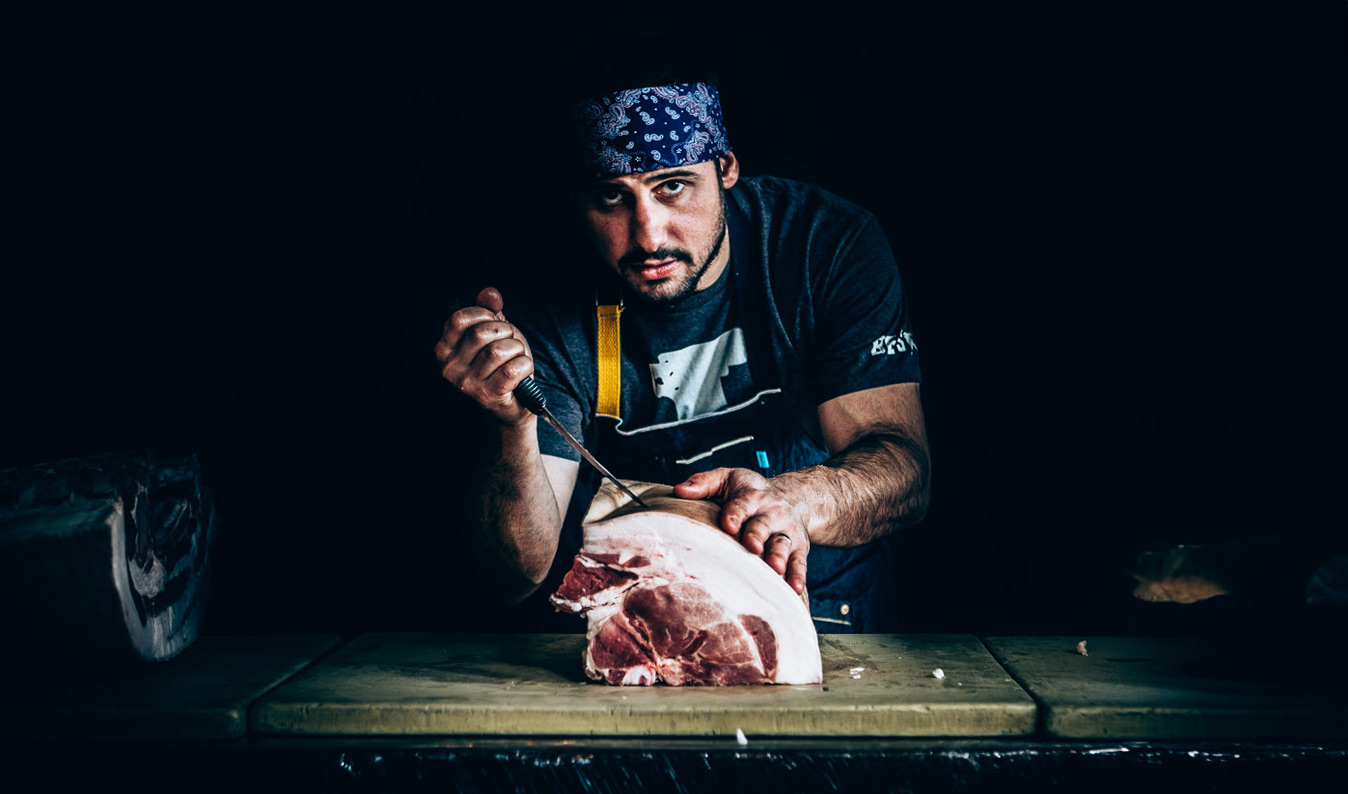
To make your dream become a reality, what were the steps you took to become a chef?
O: I have the philosophy that you have to work harder than everyone else. I was always the underdog whenever I would walk into a new kitchen. Especially since I had no experience. I was very fortunate to land into some really well received restaurants. I would walk in with the knowledge that I was the worst one there and say to myself, “How do I fix this?”
I realized that to get a handle on this business I would have to be the first one to arrive and the last one to leave. If the call time was set, I told myself I would go in earlier. I would get two to three hours on everyone. They would work an eight hour shift. I would work an eleven hour shift. As time progressed, I gained more confidence. I drew upon the influences from my childhood, such as flavors, and I also looked around at everyone—from the dishwasher to the line cooks to the chefs and pulled as much as I could from them to elevate my skill level, knowledge and technique. I loved learning new things!
I found myself almost copying their moves until I made them mine. I drew many lessons from that experience and now share them with my cooks today. I tell them, follow my lead. Learn from me and you will cook faster. Practice efficiency through imitation. Focus on the details. The details that some overlooked or deemed unimportant are the ones I thought were the most important. I wanted to become a great chef in the kitchen and I want that for my cooks today.
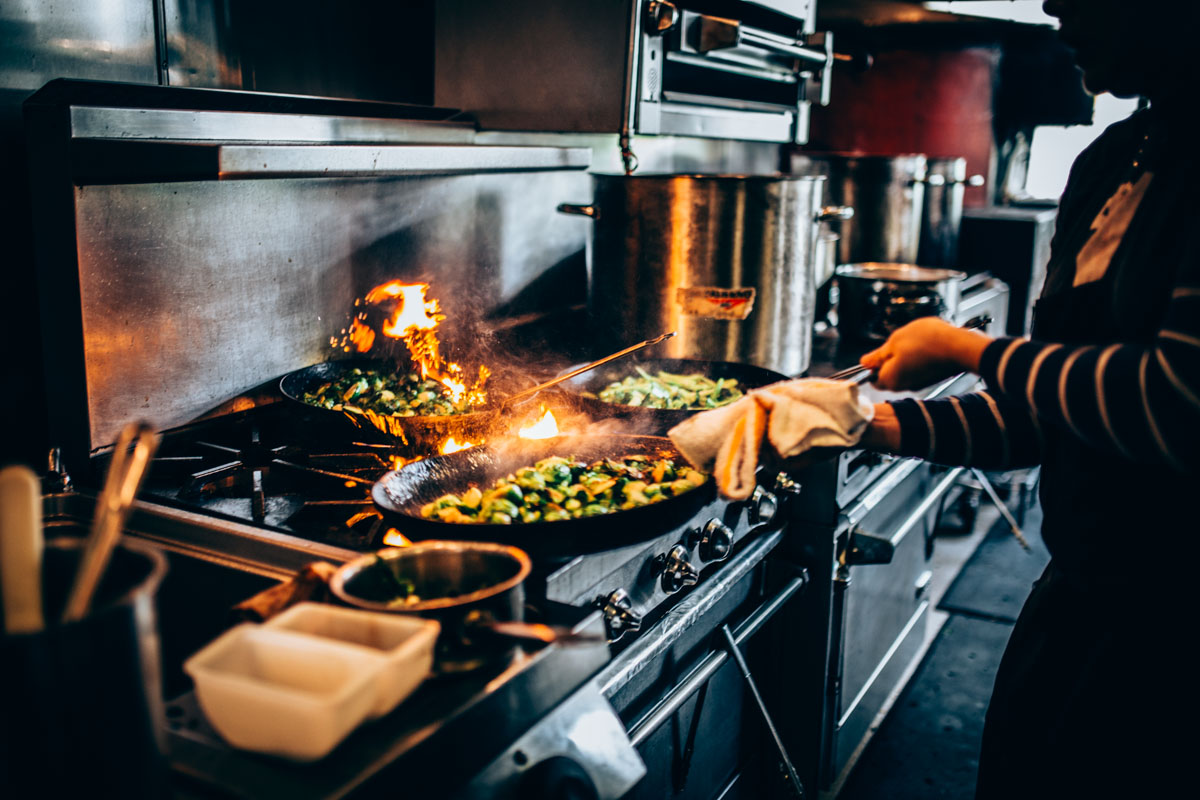
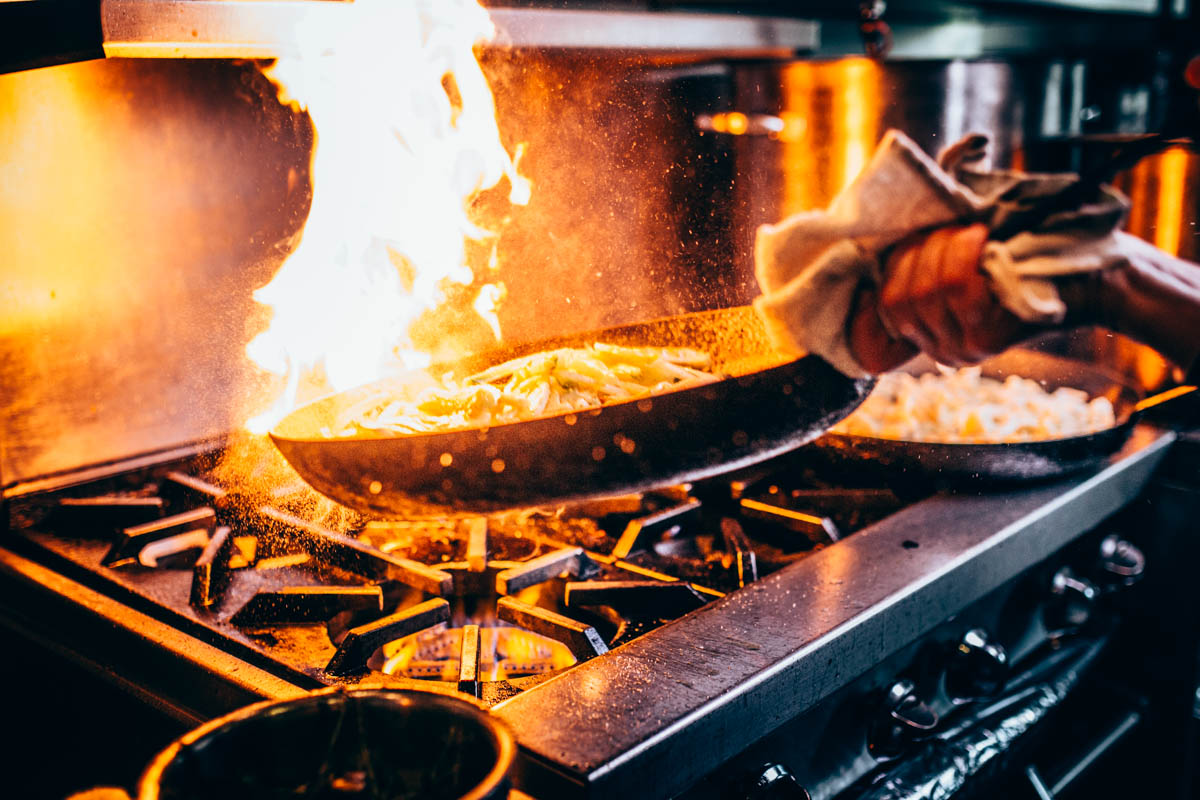
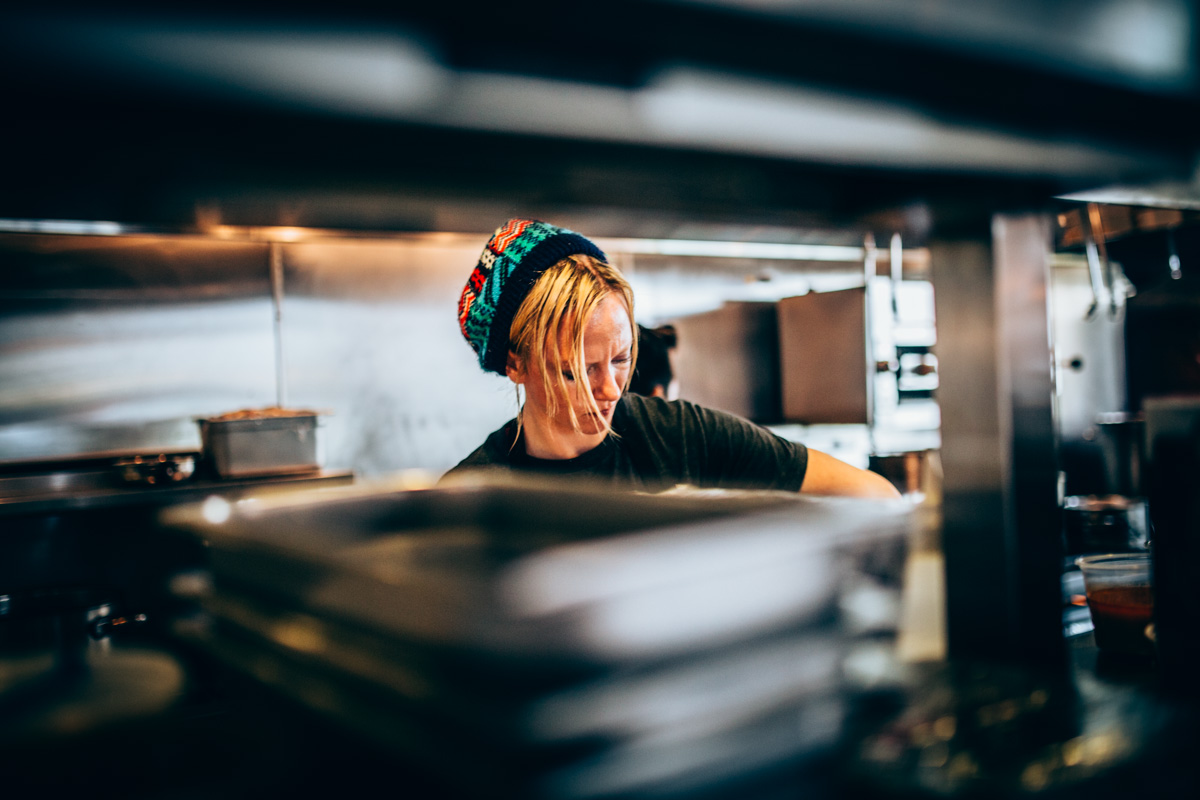
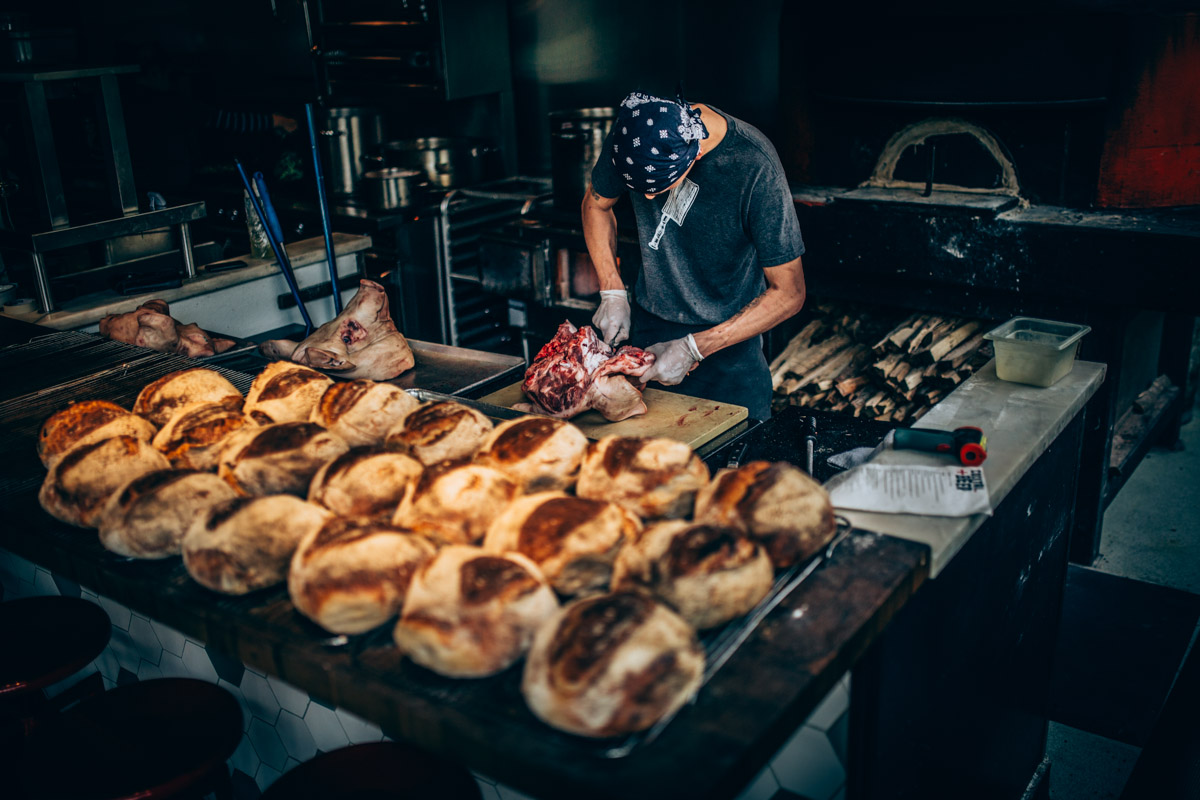
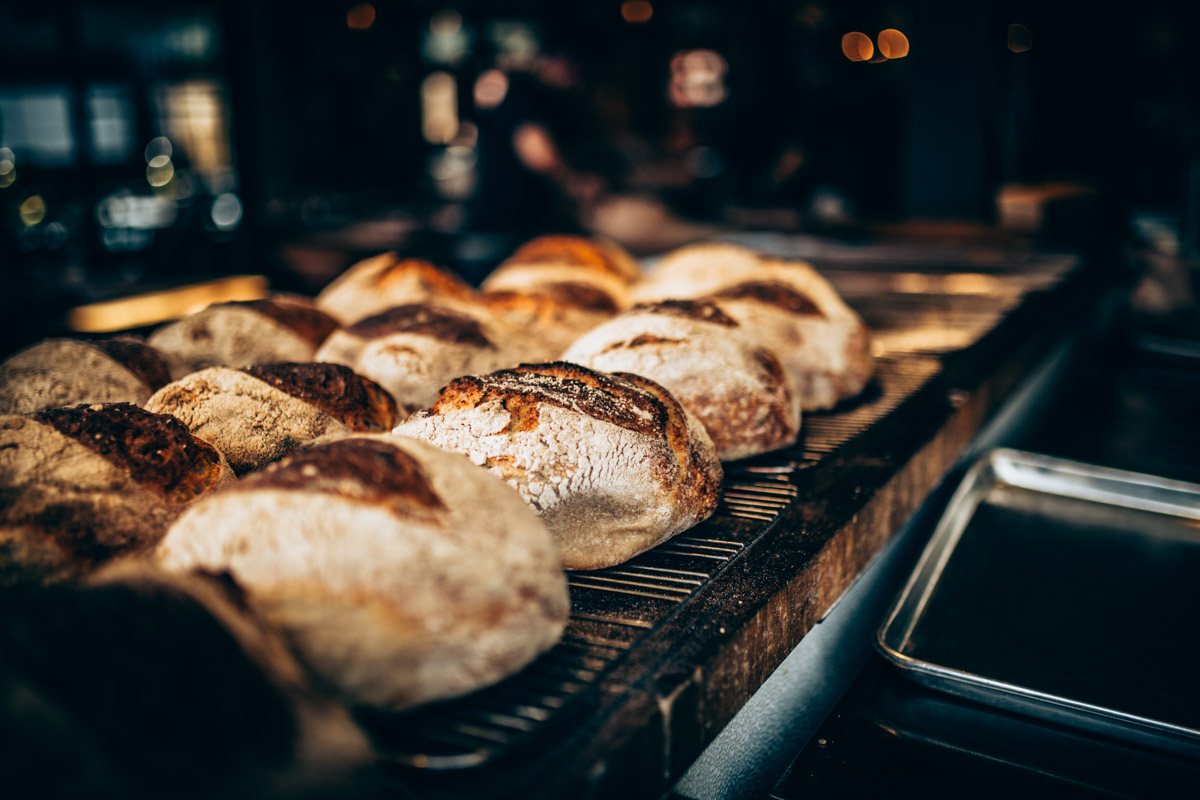
From the outside looking in, Genevieve, what did you see as Ori went through this process of becoming a chef?
G: When we first met he wasn’t as serious. He had a lot of talent but he would play around a lot. He was planning on leaving the country to work in Paris. At that time there was an opening at Gino Angelini’s restaurant for a chef and sous chef. Gino already had a chef in mind that he was bringing in from Italy but there was a sous chef position they were looking to fill.
You have to understand, I was in love with Ori and I didn’t want him to leave. I felt this job was a great opportunity not only for us but also for his career. I felt like sous chef positions were very hard to come by—maybe one every so often in a restaurant. So I approached Gino and said, “ What about Ori? He knows every station and he is super talented.” Gino resisted at first because he knew Ori wanted to move to France but eventually he approached him. I pretended like I didn’t know because this was a private conversation between Gino and I. Ori then came to me and said that Gino offered him a position as a sous chef.
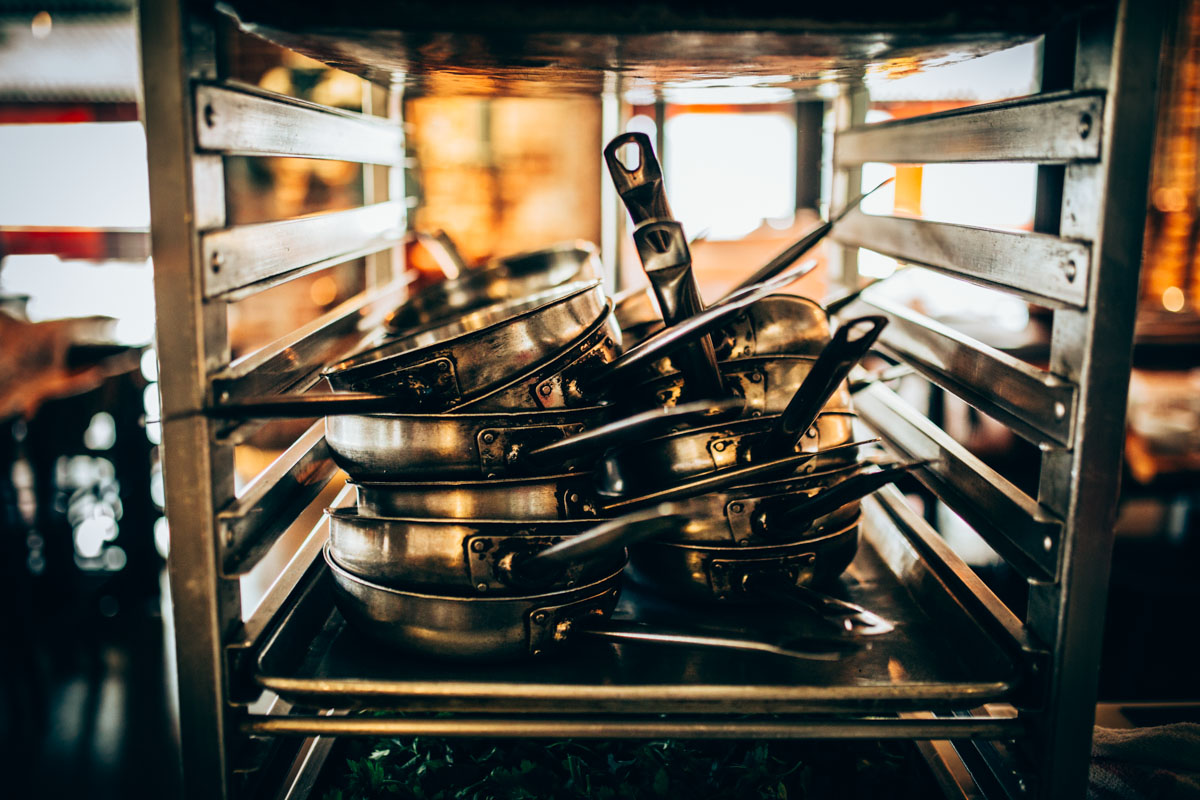

O: Gino is not one of those people that would step on your toes or do something for himself. I learned this from him too. For example, I had this line cook who was a beast. He was probably one of my best cooks because he would just produce so much food which made my job easier. He actually had a baby in Mexico about four months ago. I would always go to the line and ask him, “What are you doing here? Don’t you miss your kid?” He would say, “Yeah, I see him like once a week.” He would make the long drive to Mexico!
One day I brought my child, Saffron, into work and walked up to him and said, “Bro, you have to leave. This is what you are missing,” while holding the baby.
He said, “Okay chef. I told you I was going to stay here for at least a year. I am going to hit a year in a month and a half, then I will leave.”
He left. It put a toll on my kitchen but I am happy with his choice because to me, it was the right decision for him to make.
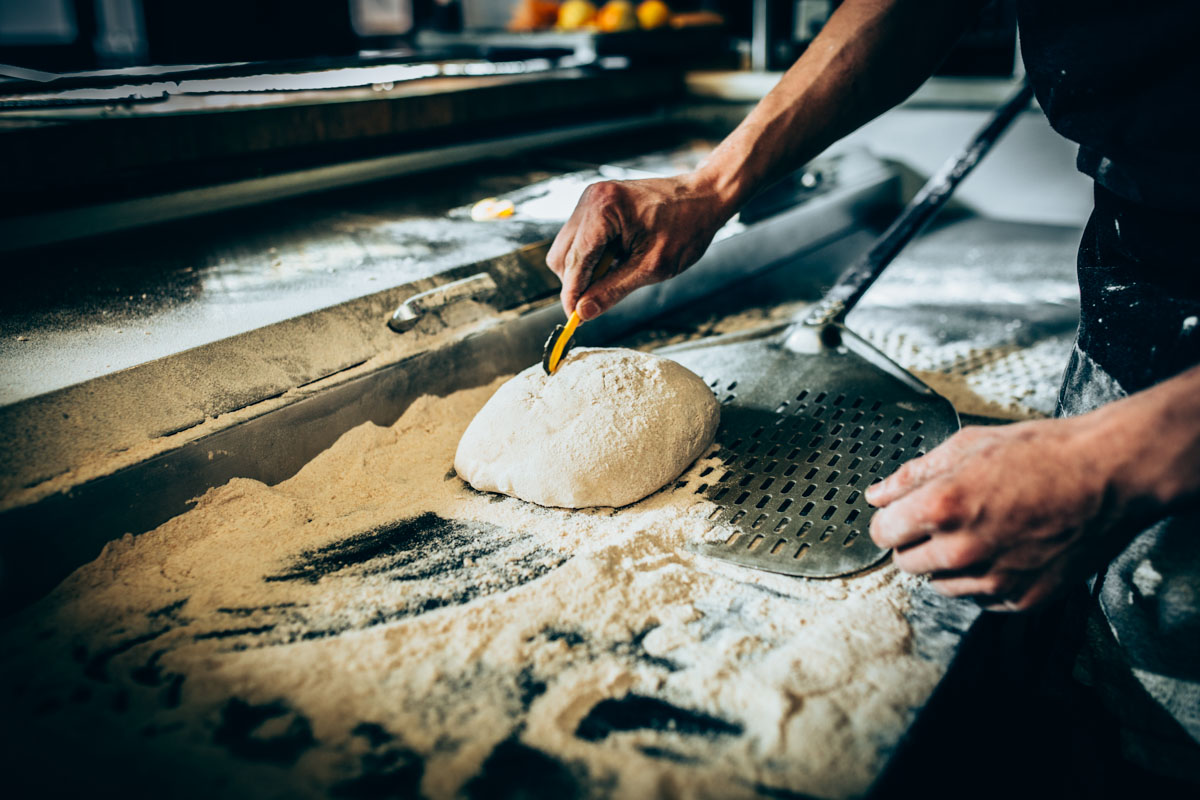
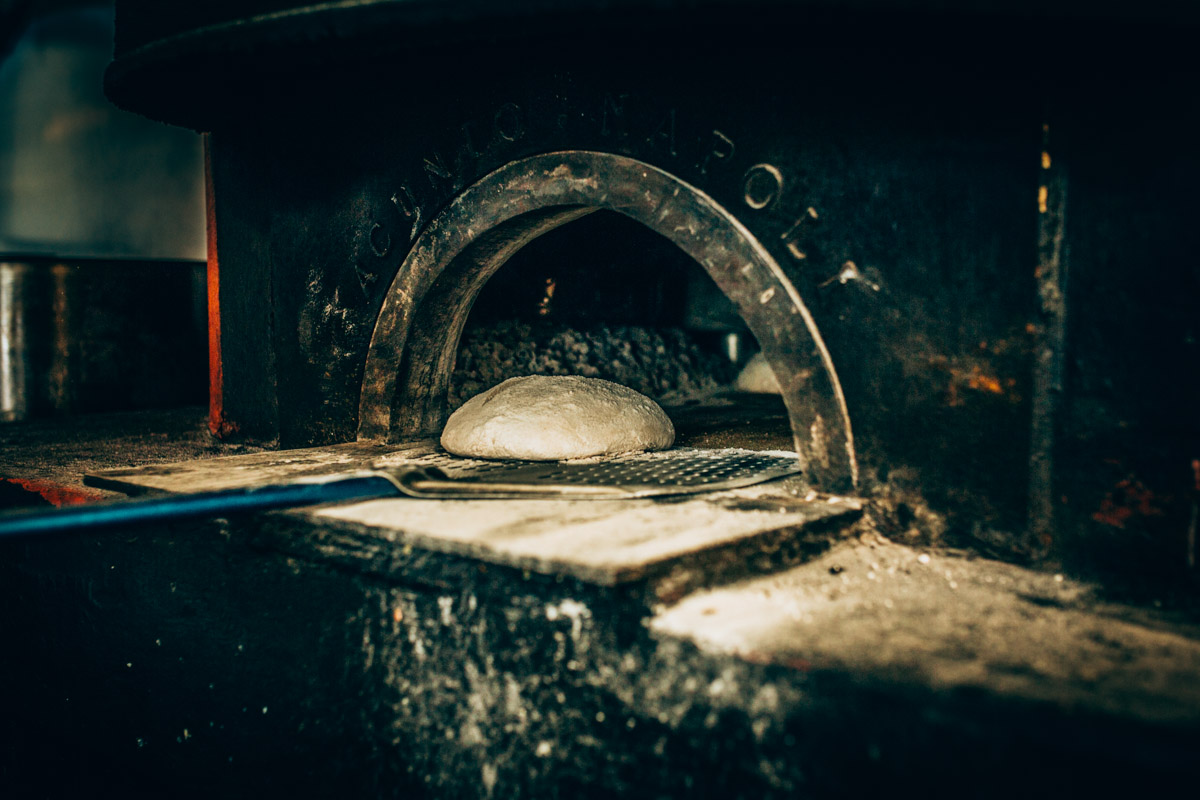
Did family and food play a big role in your childhood?
O: My parents were in the clothing industry when they lived here. When they moved to Israel, my dad opened a bakery. He always had a love for food. He was actually a self taught cook. If you were to eat dinner at our house you would think that my dad was the greatest chef around. I think today we are probably on the same level. His food is a little different than mine though. He leans more towards French and Asian influences whereas my food is more Middle Eastern and Italian. With the bakery, my dad would work long into the night and make bread, then sleep during the day. When we arrived home from school everyday, an amazing lunch would be made for us. That was my dad’s job.
My dad used to send me to school with pita bread and some cream cheese with some smoked salmon. Or he would send me with a loaf of bread with some foie gras. Kids next to me would be like, “What in the hell are you eating? You’re eating dog food!” I was a little embarrassed to say the least. Everyone else would be eating chocolate or peanut butter and jelly sandwiches. Although in Israel, it would be nutella spreads and here I am eating this funky fish smell that people weren’t used to.
Growing up, my parents would call me “little gourmet.” They actually forced me to eat things that my brother and sister wouldn’t eat by using reverse psychology. I would eat broccoli, eggplant and all this stuff that would make me gag. After a while though, I started to really enjoy it.
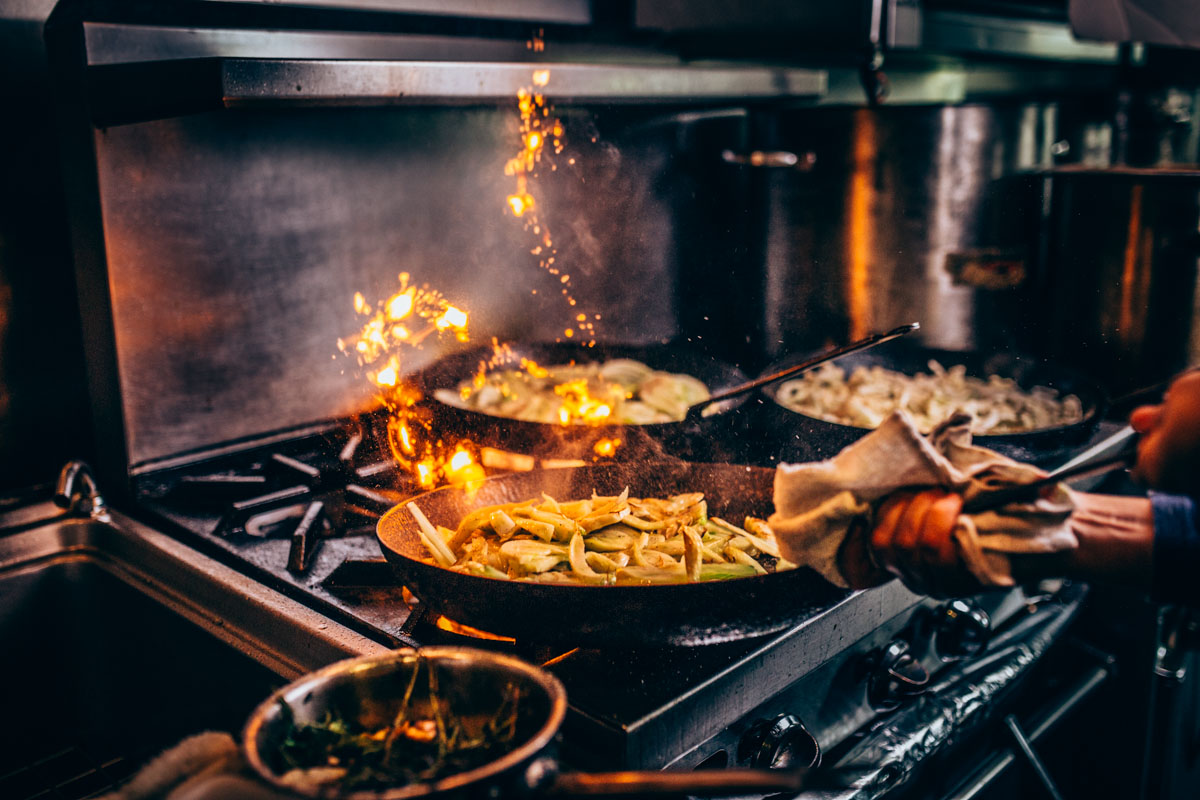
What steps did you take to become a pastry chef, Genevieve?
G: I am a self taught chef. Like I said before, I did it out of necessity. Out of passion. When it came to the restaurant, we weren’t sure I was going to head the pastry program until six months before we opened. Then it was decided. I was like, “Wait!”
I had never worked in kitchen before, I had only baked at home. I ended up staging at an establishment for three weeks. I was able to pick up on some techniques that helped me along the way. It was the first time I had someone guiding and leading me.
With that experience, I started to design the pastry program and developed my own approach to baking. I create desserts that I would want to eat myself—simple. I would then create the dessert and hope when we served it people would go, “ Yeah, I want to eat it too!”
That was and still is my concept.
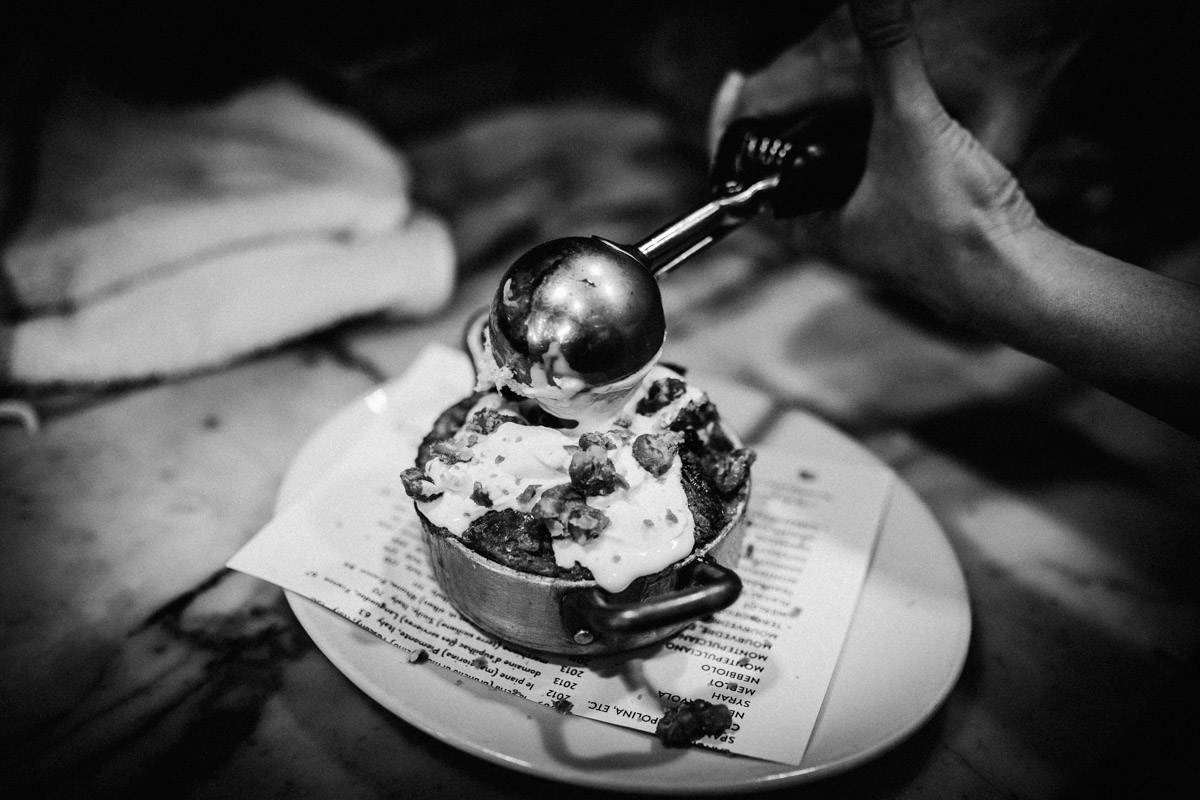
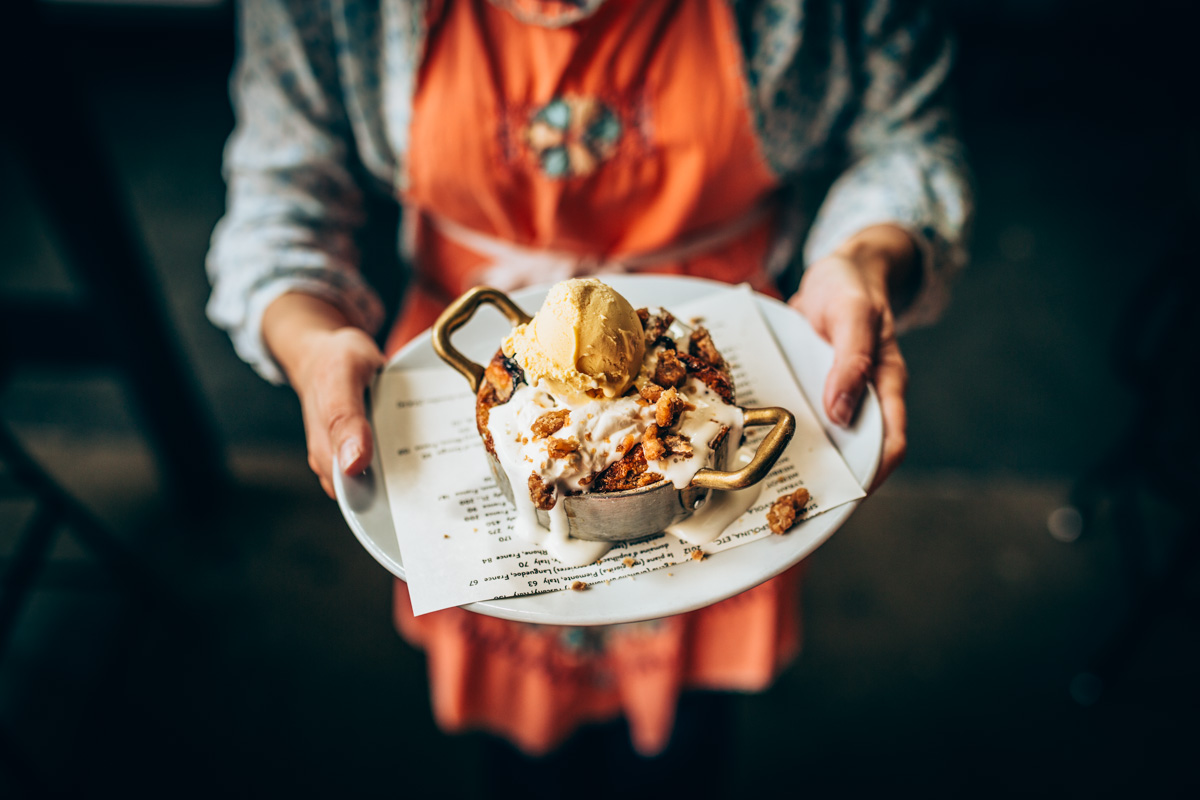

How do you go about creating the Bestia flavor profile that many have grown to love?
O: My food is heavy on prep and then simplified for execution. We pack it with flavor before service so you don’t need to tweak things during. But with that said there is nothing simple on the menu. There are five items on the menu that some would consider simple like salads with a vinaigrette but in terms of our meat program it is a process. One that takes days, weeks, or even as long as a month. You make one mistake and it’s gone. Simple is a craft that constantly needs to be worked on and polished in order to produce excellent results. To me, simplicity is the way to go. It’s the old way of cooking and I feel like impressing a customer with something simple is a little bit more difficult. It’s about paying attention to the details so that nothing goes unnoticed in order to produce an excellent meal.

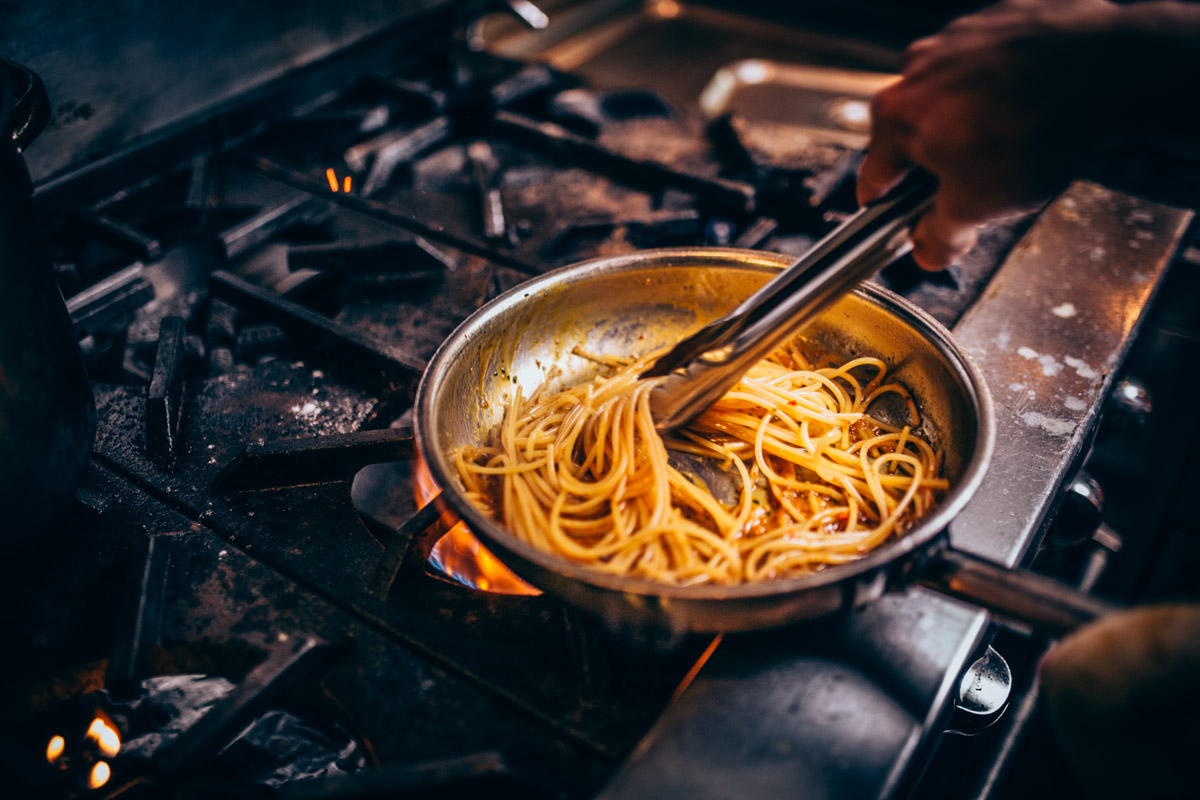
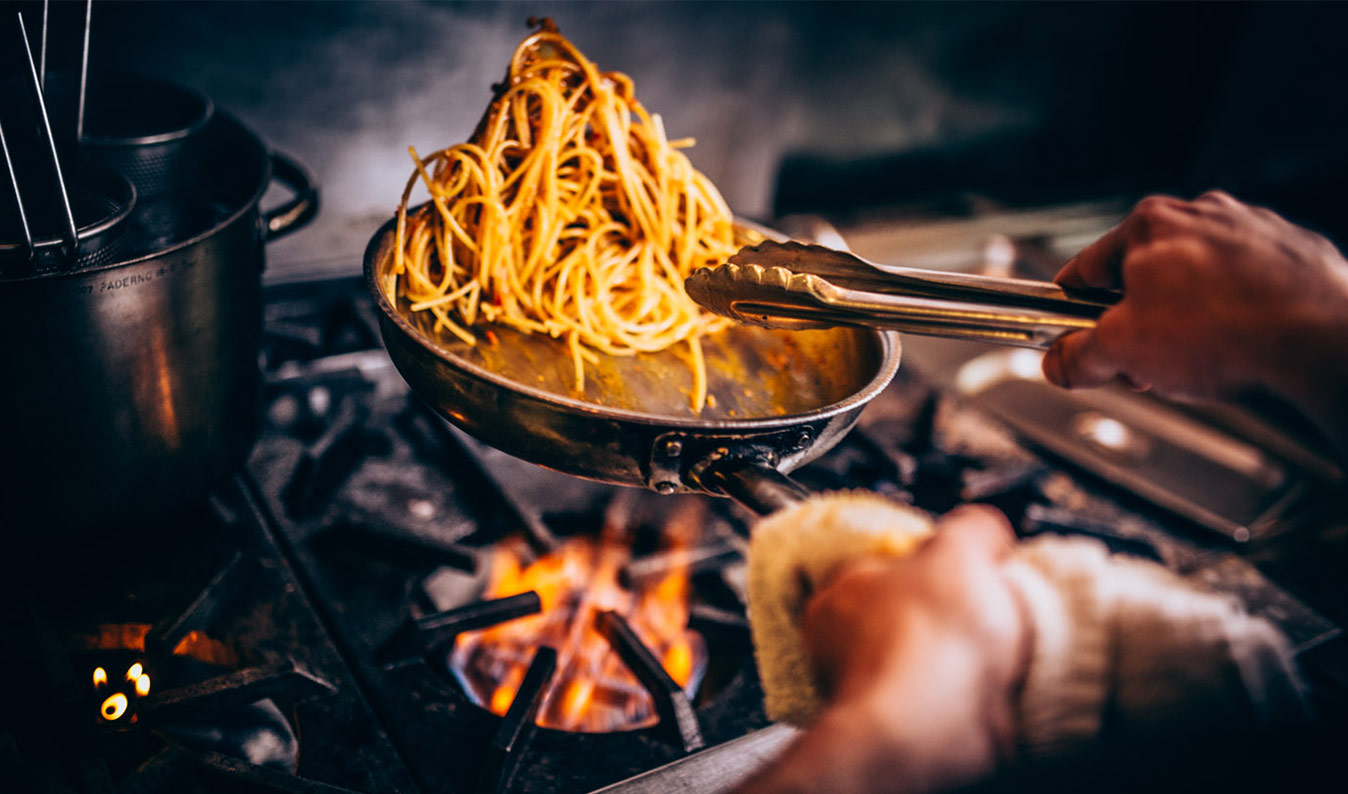
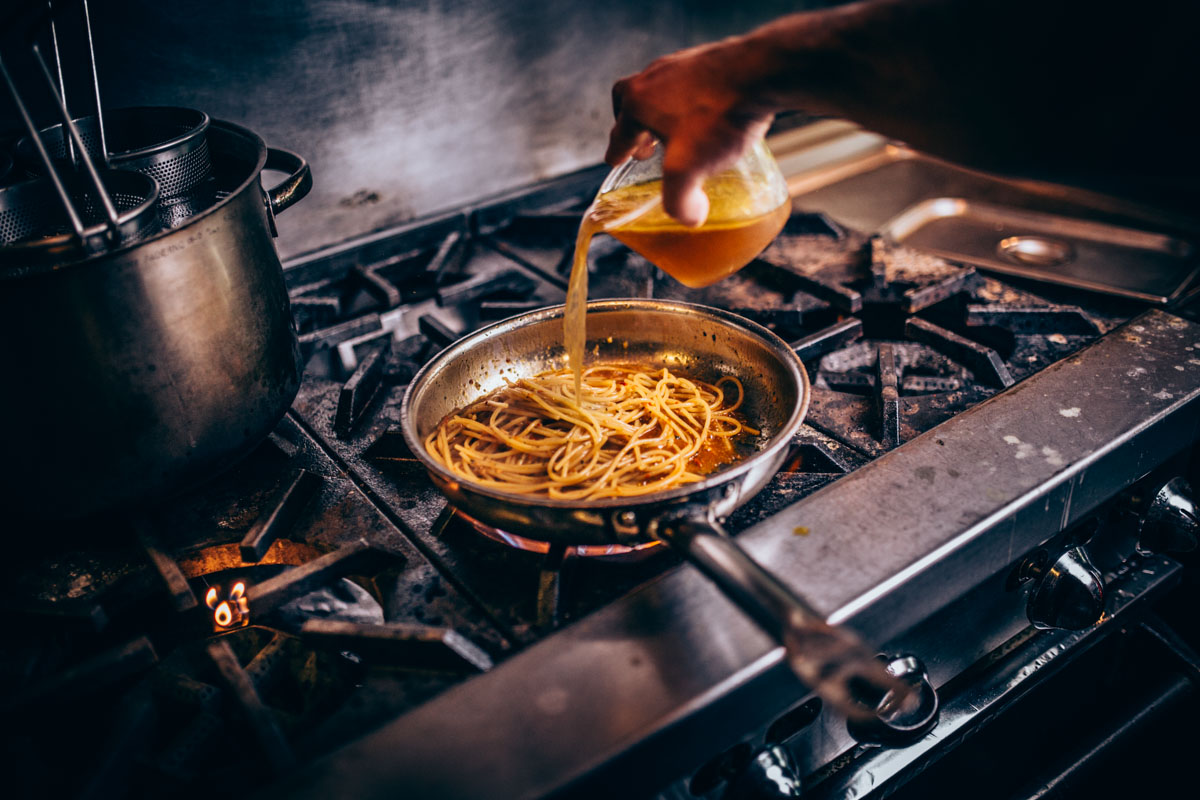
Can you describe the blessings and hardship it is to run a successful restaurant as a married couple?
G: I mean you sacrifice a lot. Sometimes people don’t understand the toll it takes on a relationship. When I hear someone say, “I want to open up a restaurant,” I say, “Don’t do it!” Ori and I talk about it everyday. Basically, this is your life. The only time that we really see our friends is when they come in here to eat. We get maybe five minutes to catch up with them then it is back to work.
It’s hard because you sacrifice a sense of balance. I mean, before, we had more of a relationship because we would work the whole shift together. Now we have a baby. I want to be a mom. I don’t want to be a mom that only sees her child really quick and then tucks them into bed and then sees them in the morning. I really want to be a hands on mom. I still have a desire to continue with the restaurant and to be a great wife too. I want to support Ori because that is what he needs to do well at his job. That is how we started and how we were able to become successful—we had each other.
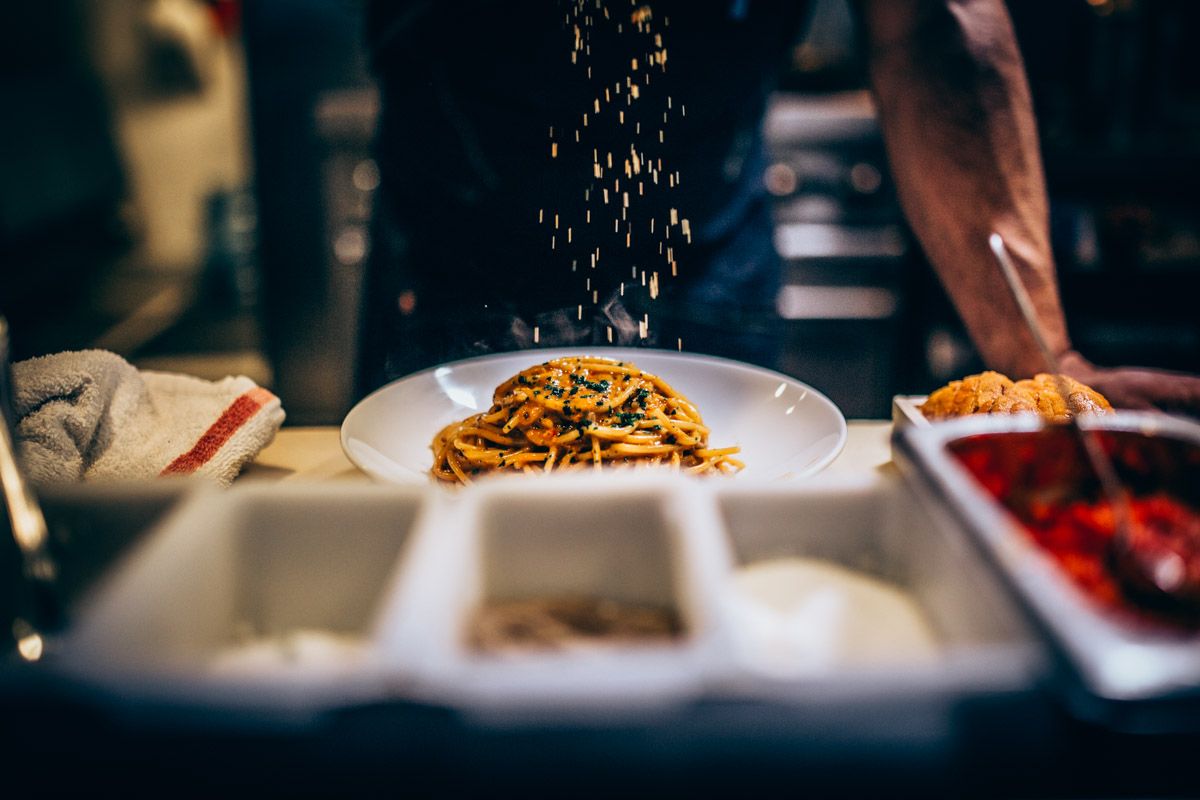
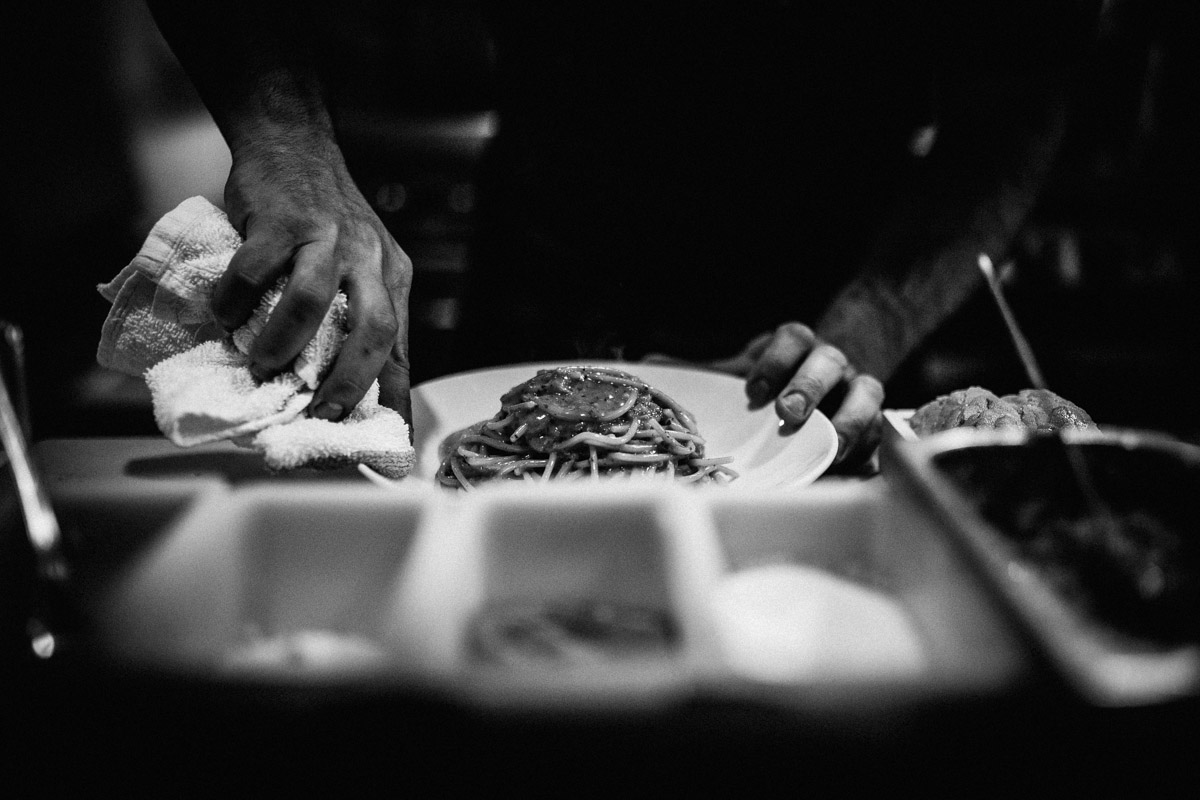
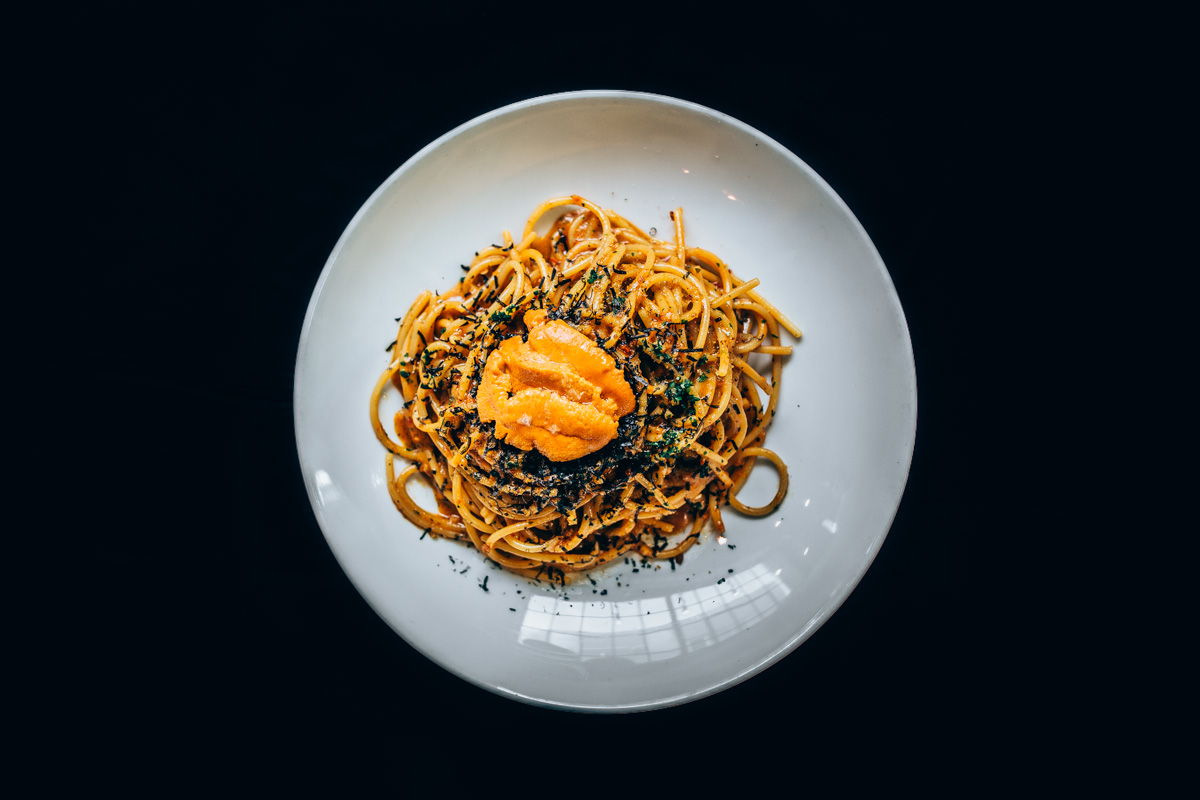
O: I agree, it does take a toll. I get phone calls on my days off and texts nonstop. I want to be open and available at all times to each and every person but I realize I need to create some boundaries to allow myself to be present with our family. I am a workaholic. I am also a family-aholic too. Balance is something we are striving for, especially with the opening of our new restaurant. That is why I am focused on building a ridiculous team right now.
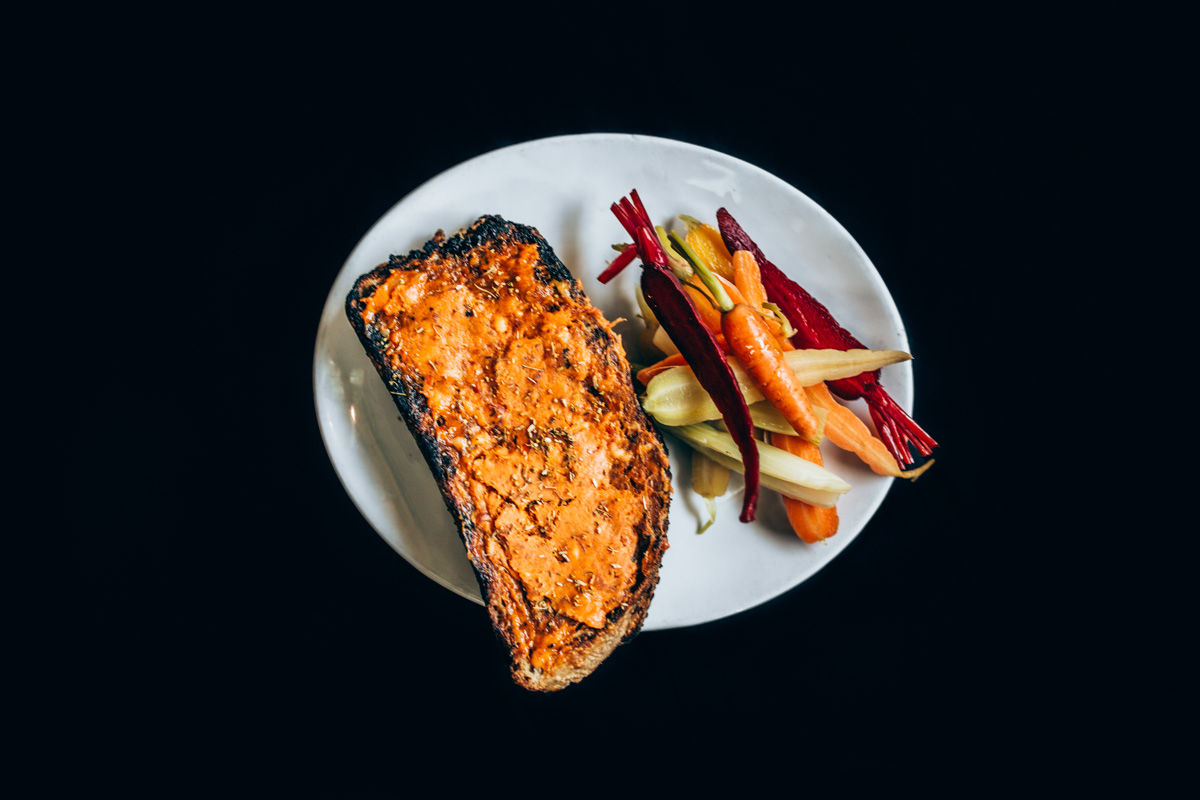
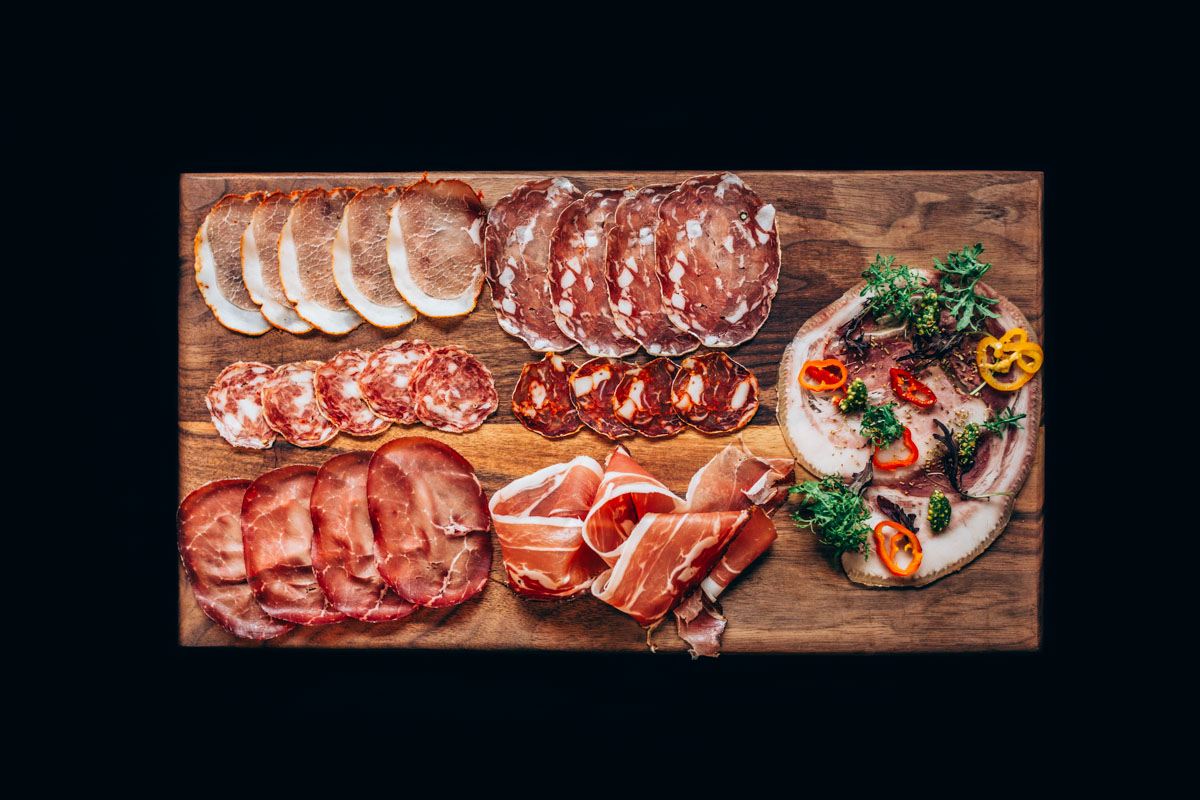
Finally, when you walk in the doors, there is a family feeling to the place. Do you feel Bestia is a family restaurant?
O: I am 100% certain that this restaurant is run as a mom and pop establishment mainly for this reason—any staff member of ours know that they can come to us for anything they need. It doesn’t need to be about work. I treat my line cooks like they are my brothers. I work with them everyday. That is how I am and it is very real. I don’t do it to make my restaurant run better. I seriously care about everyone that works here. It doesn’t matter if someone is a line cook or a dishwasher. We care about each and everyone who is part of the Bestia family and will do what it takes to care for them. Whether that is medical insurance, consoling them, or mentoring them. We are really proud of what we have done here and I feel the staff appreciates it and it shows in the finished product.
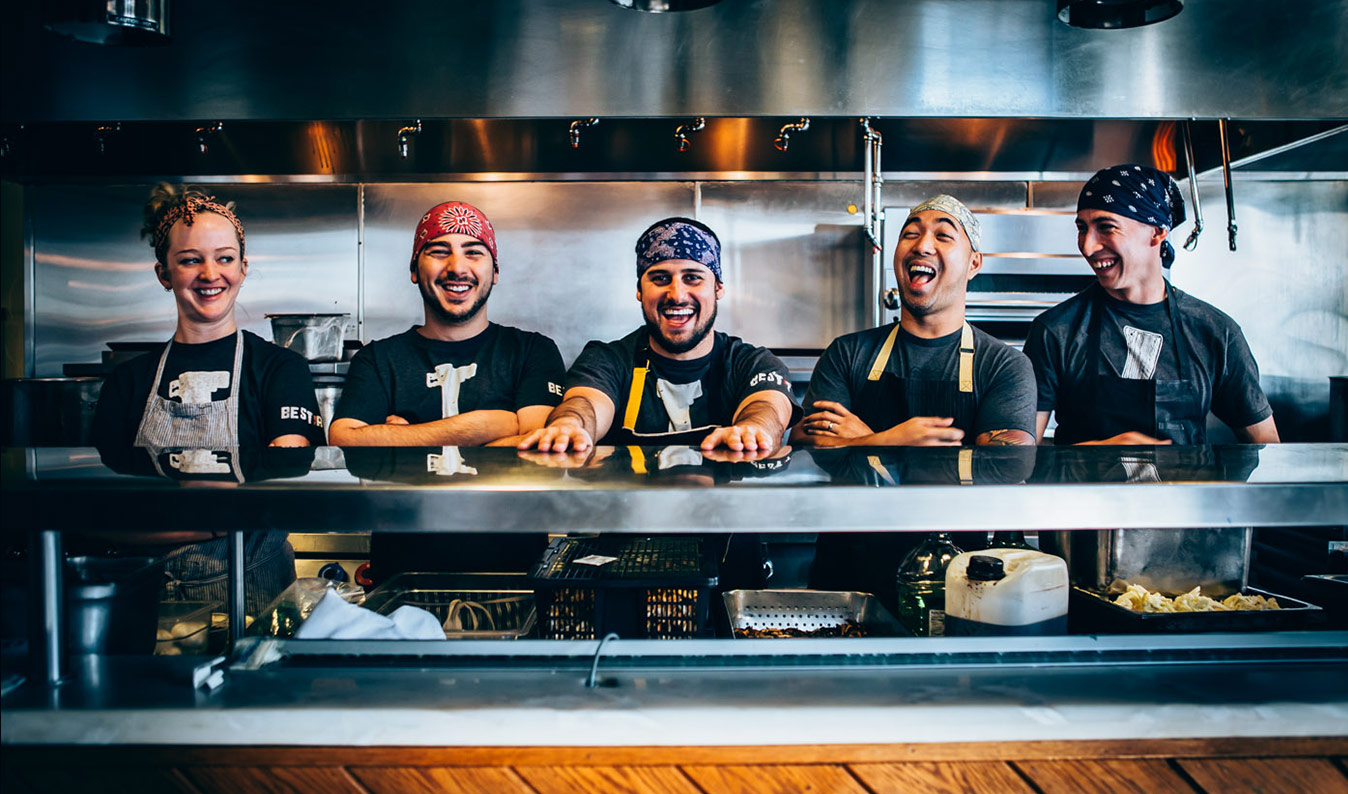
—
Bestia
2121 East 7th Place, Los Angeles, CA 90021





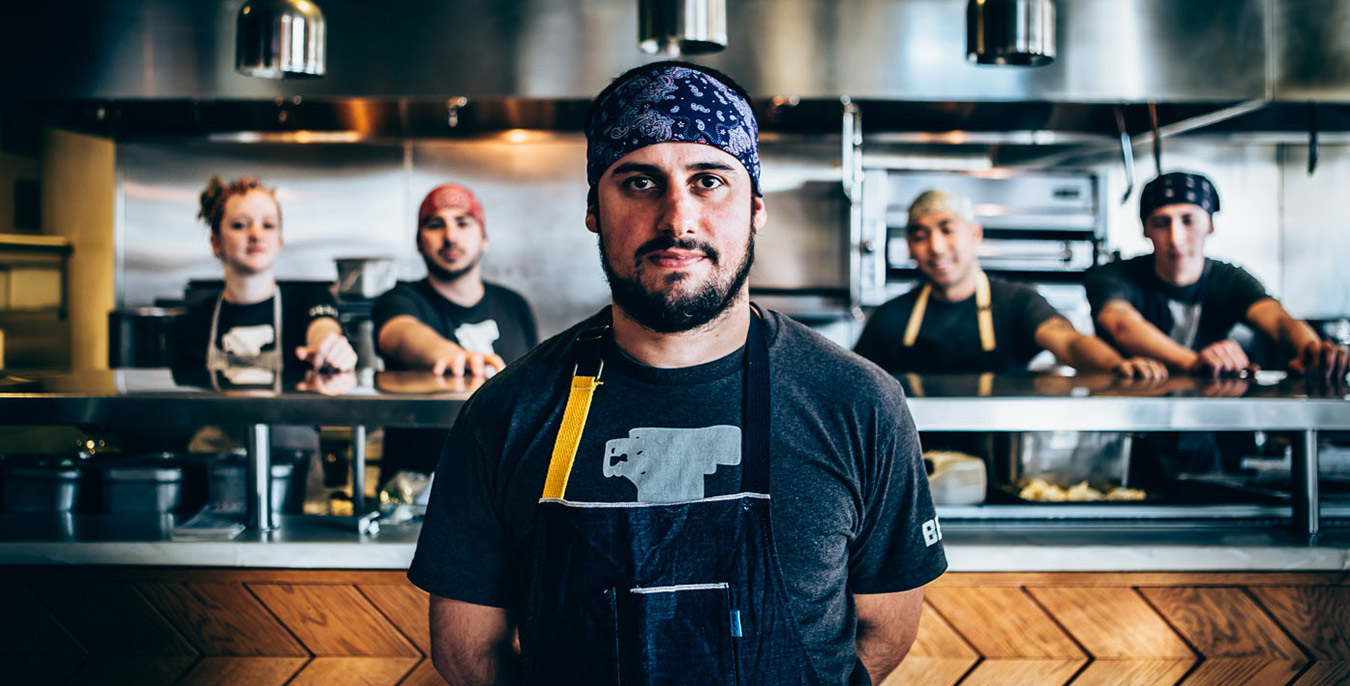

Our comments section is for members only.
Join today to gain exclusive access.